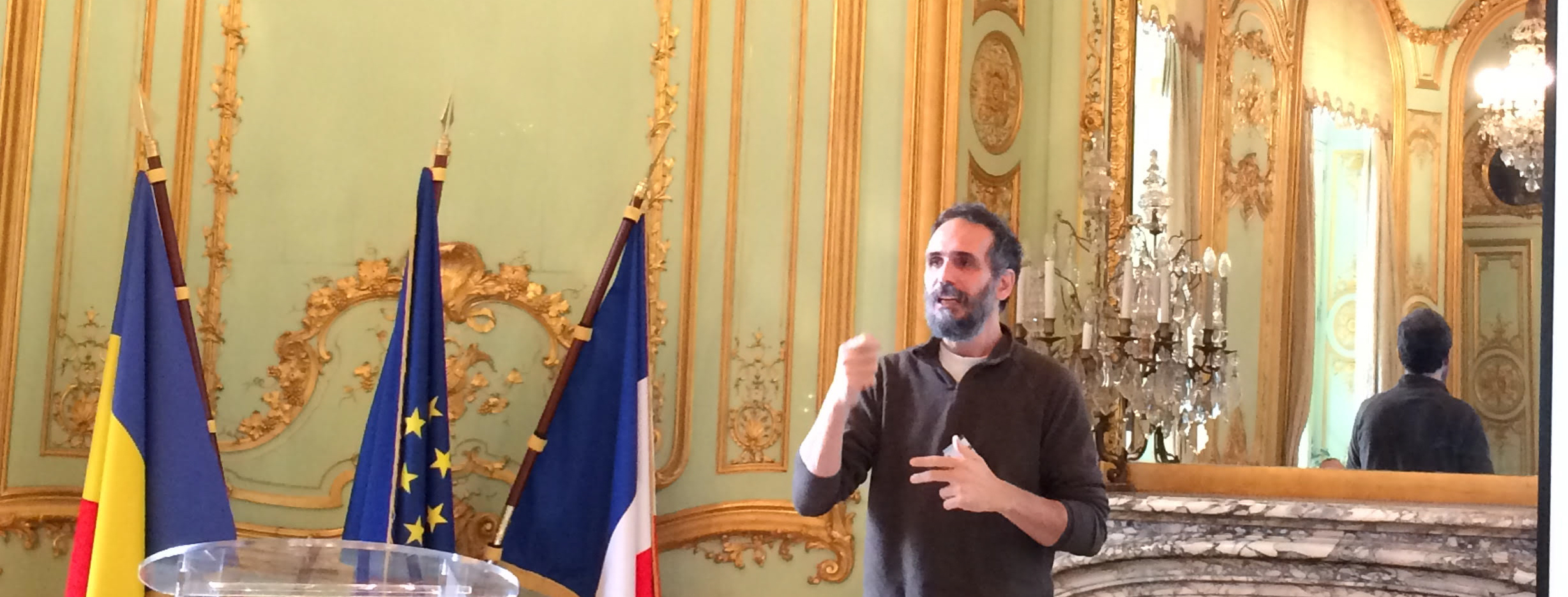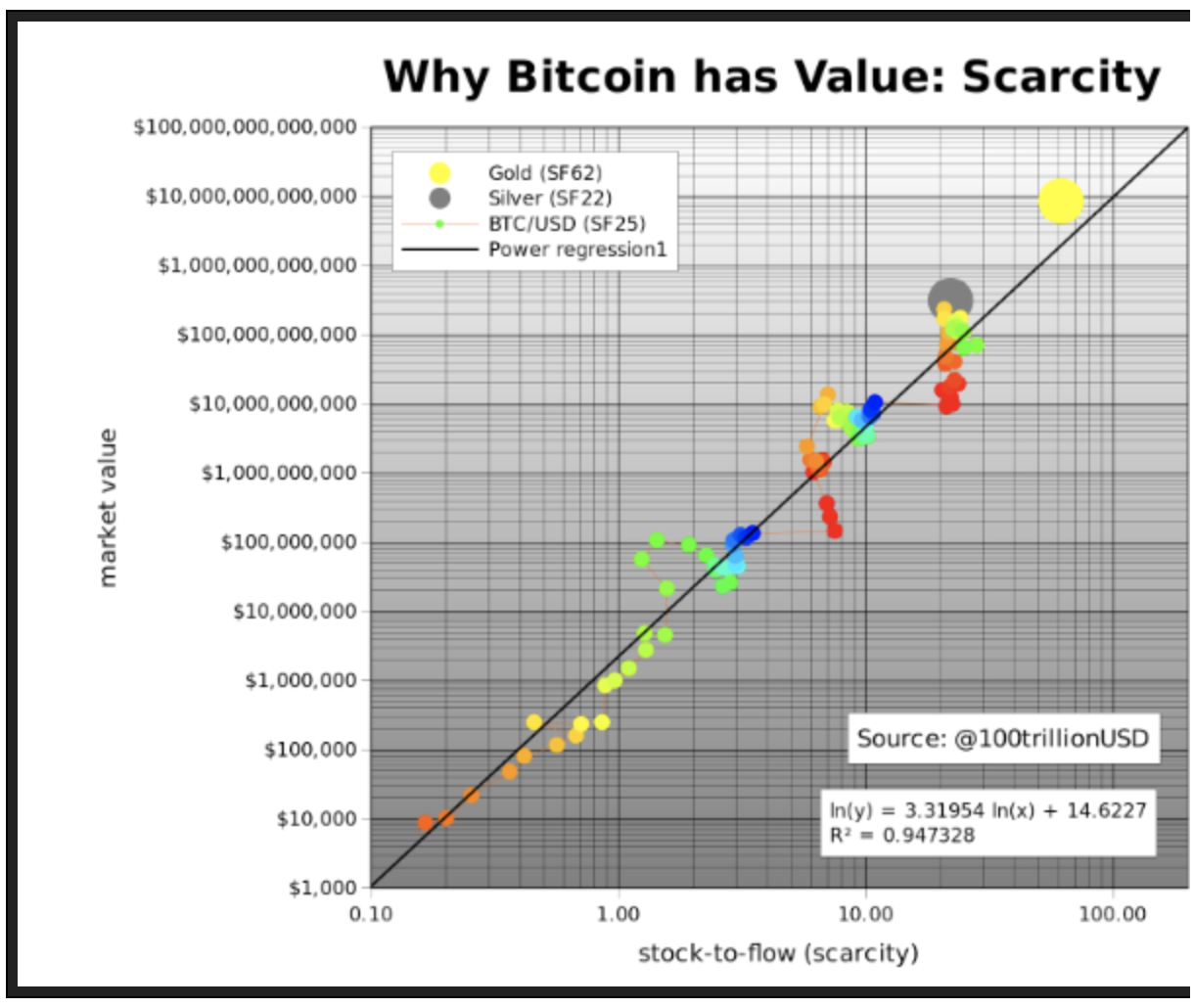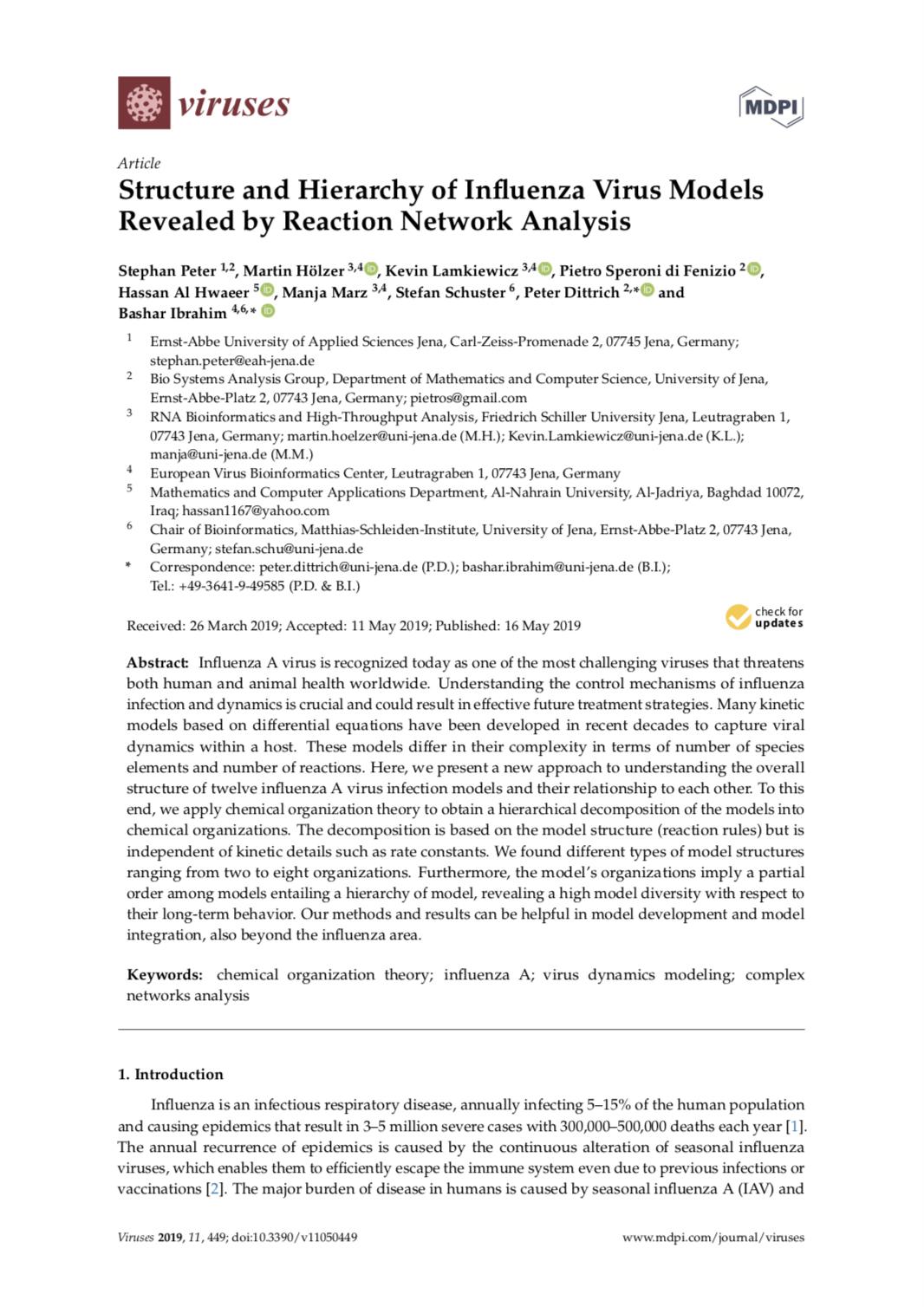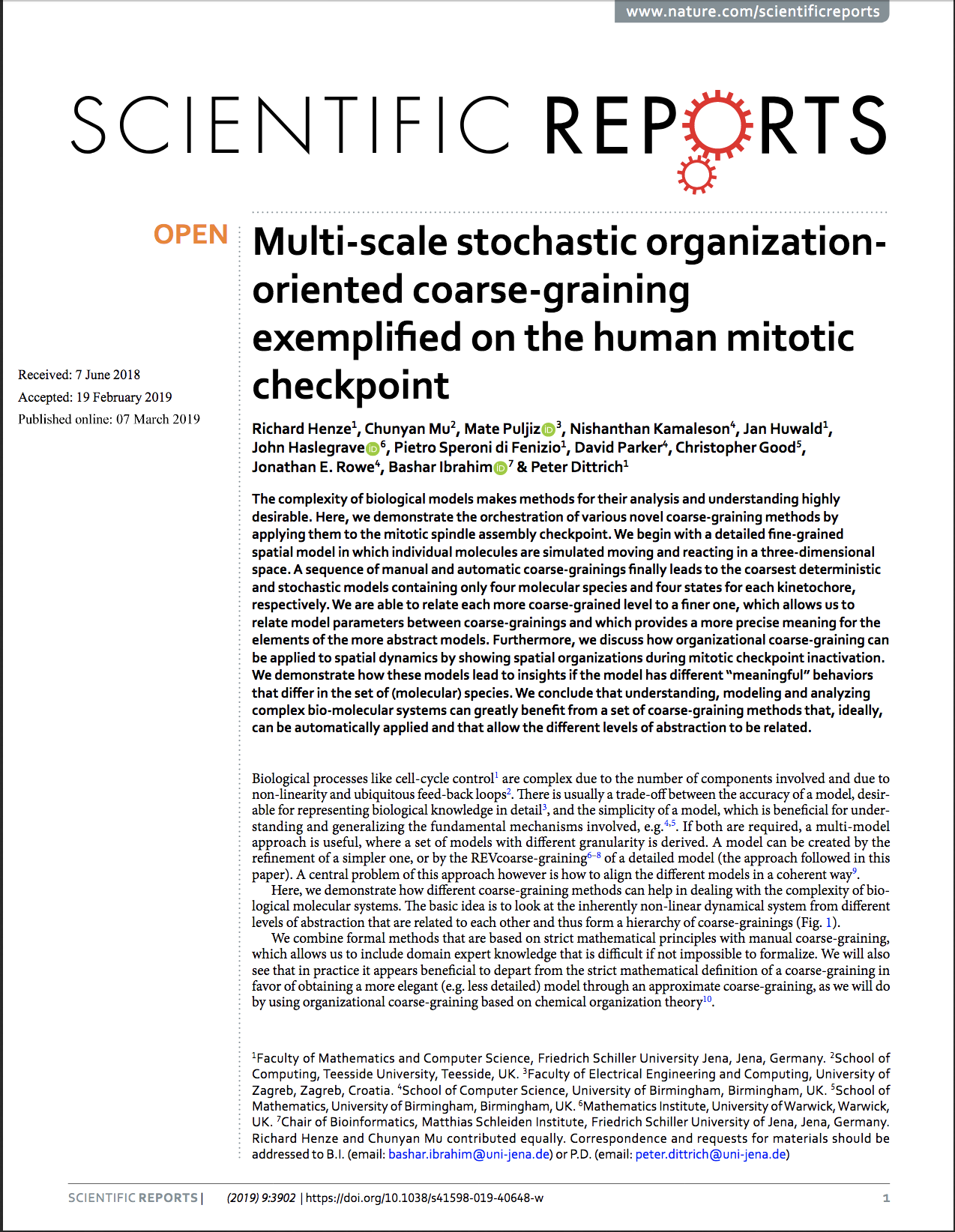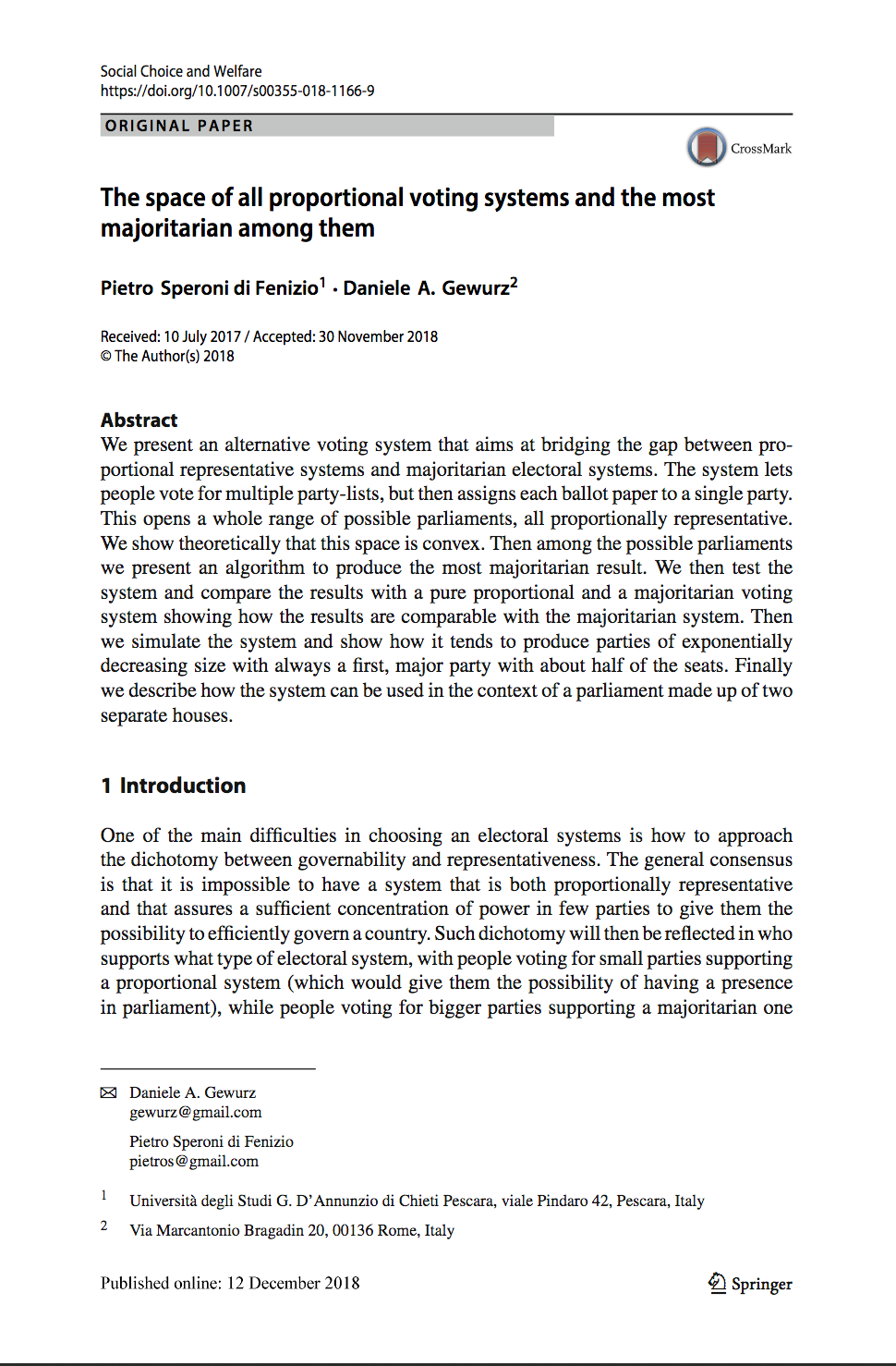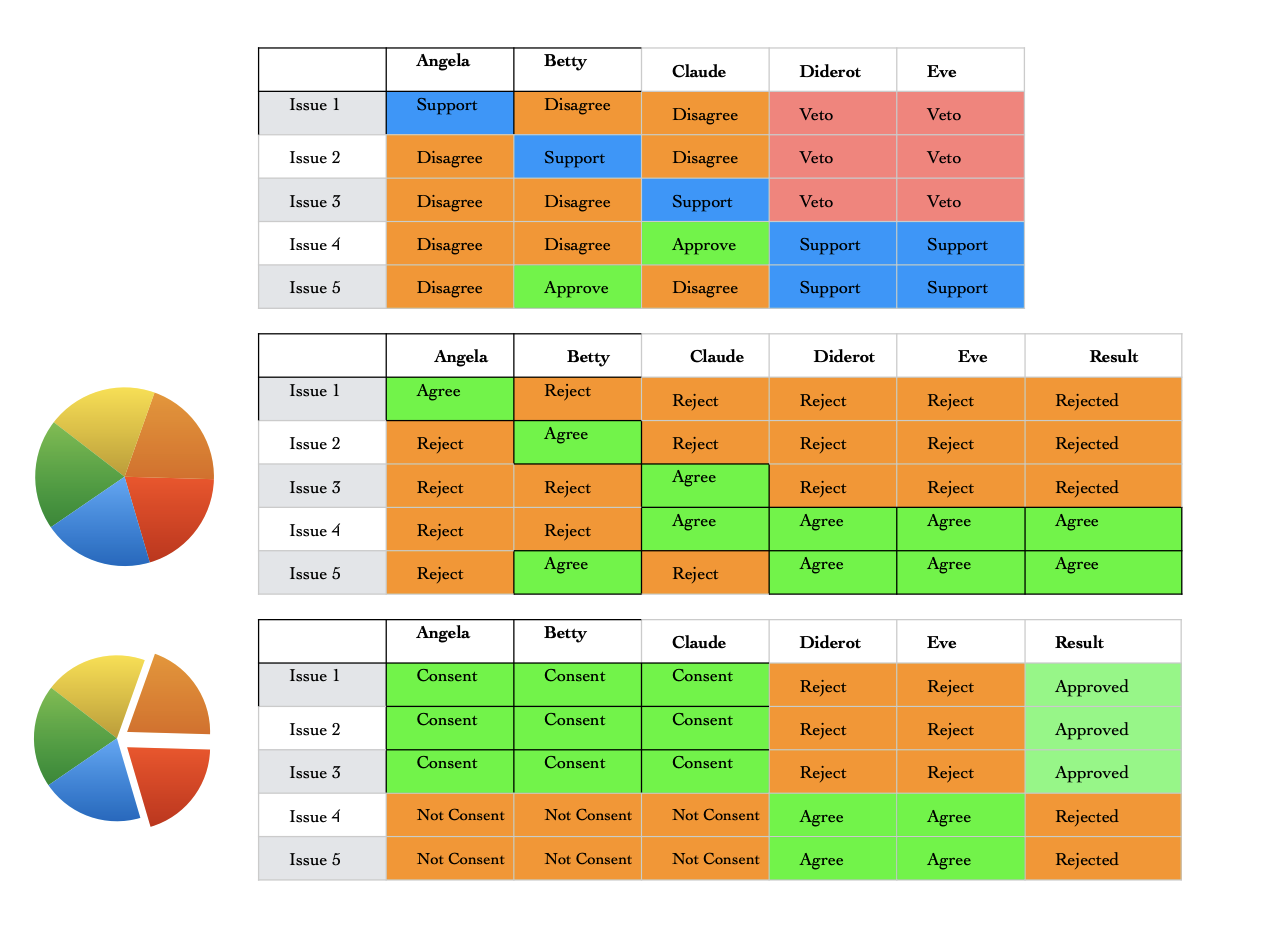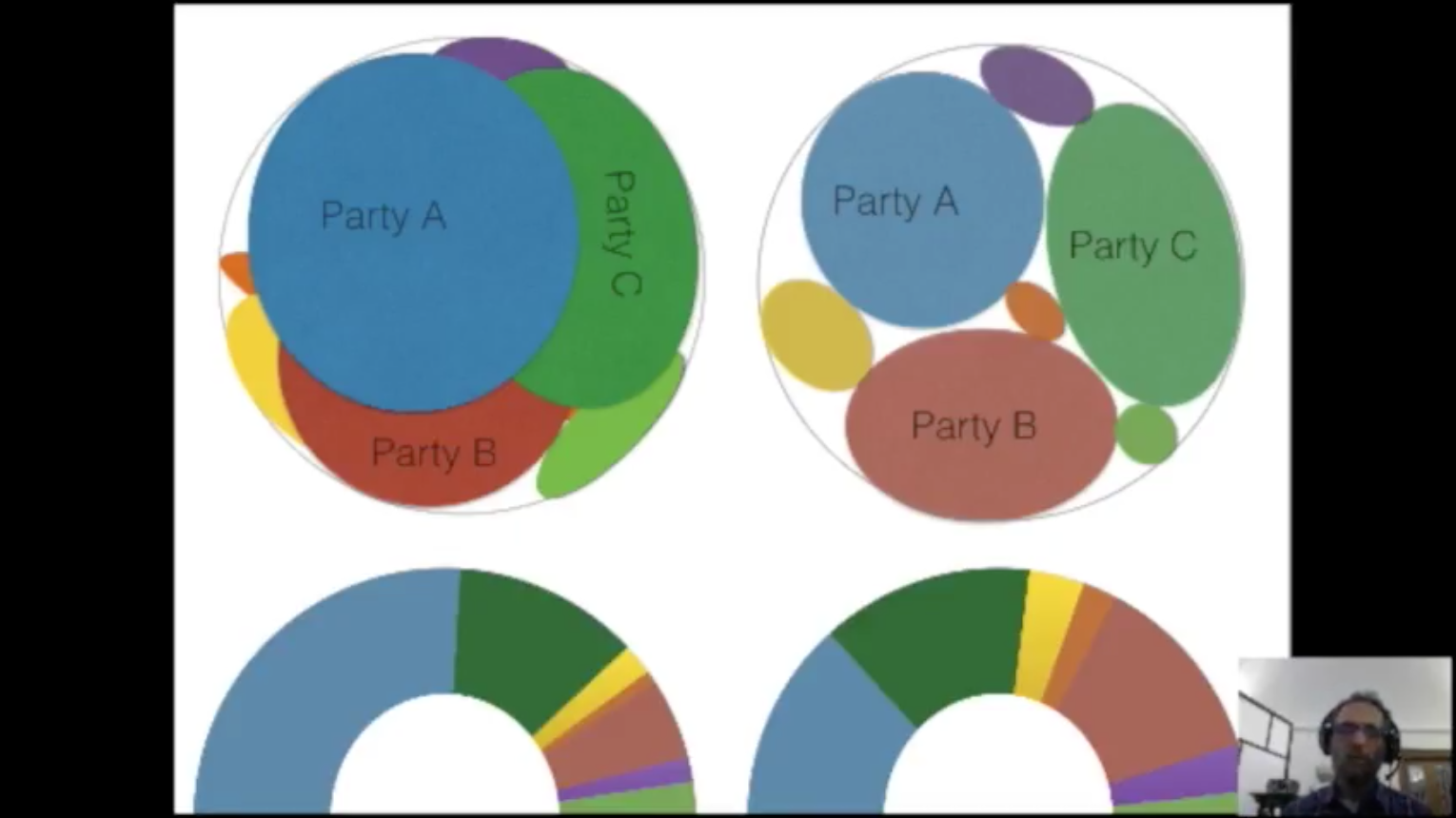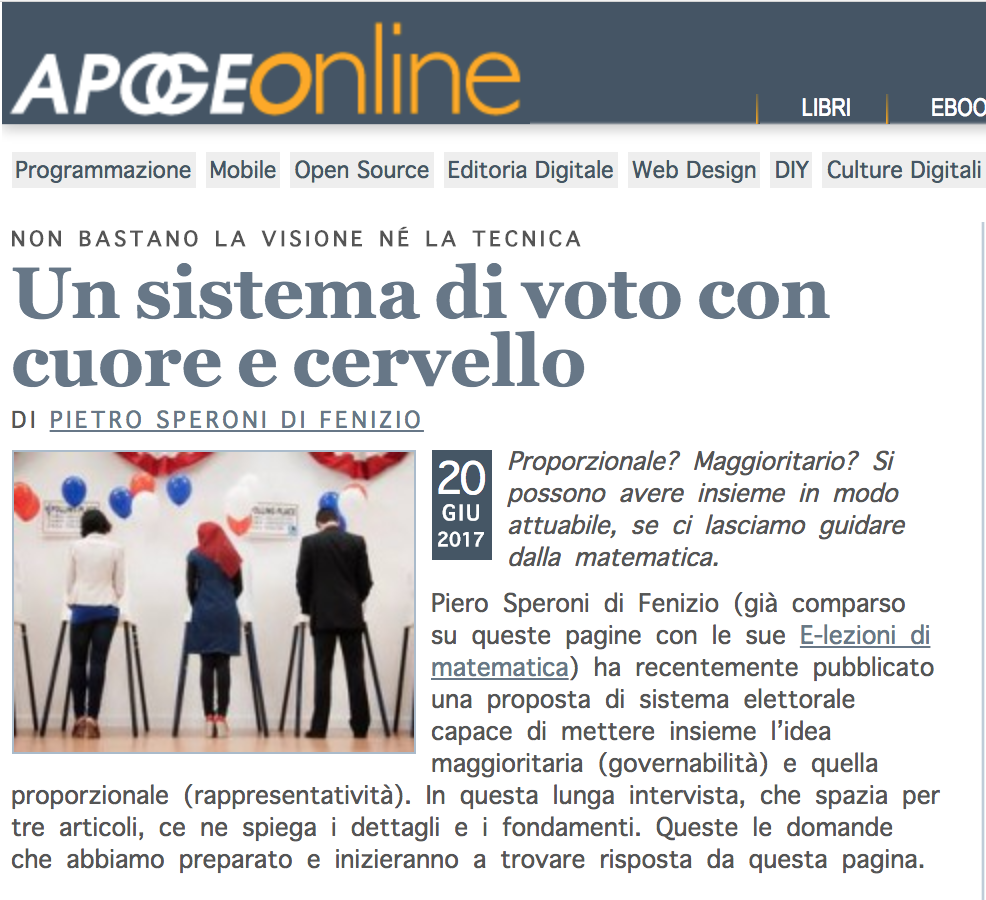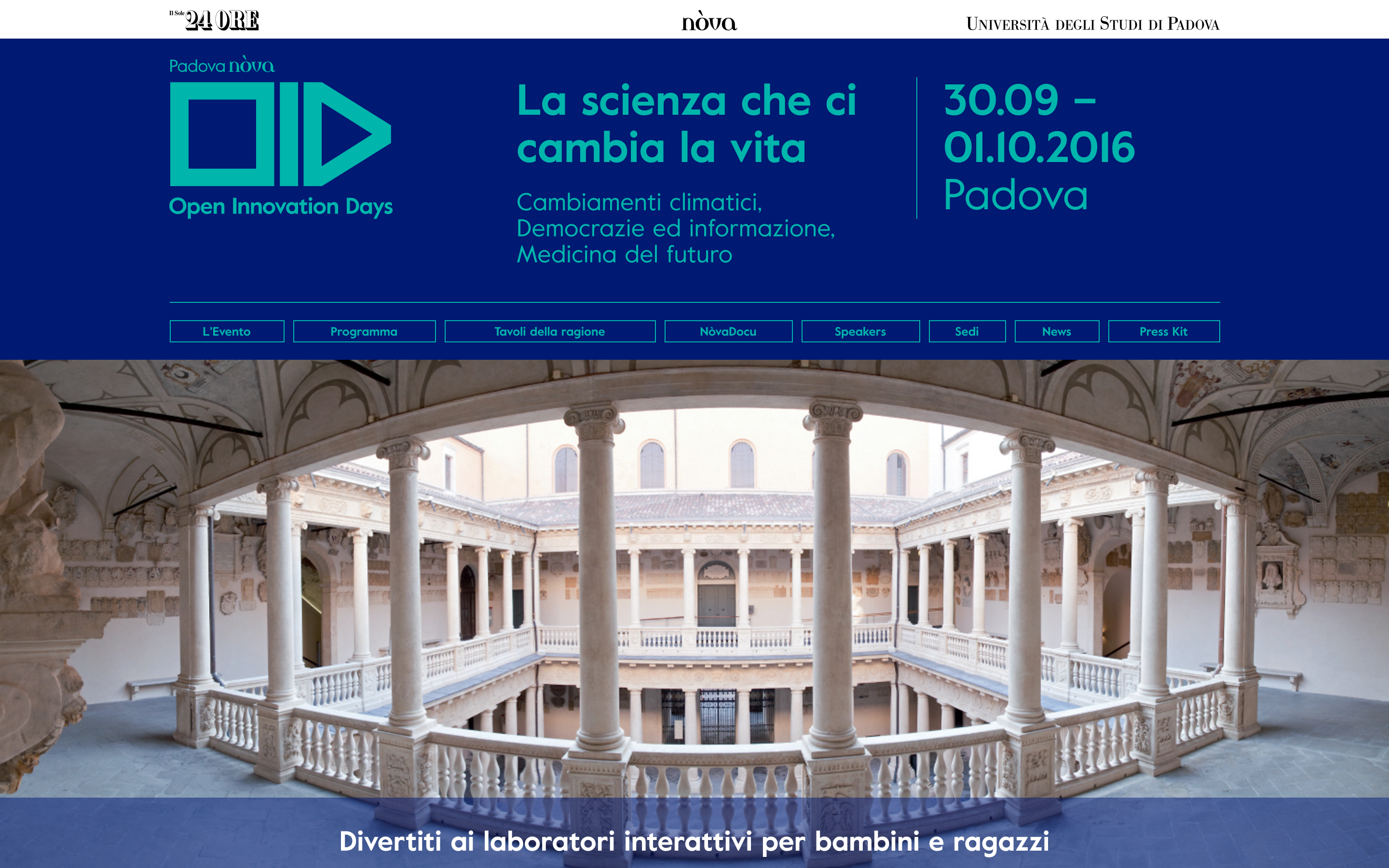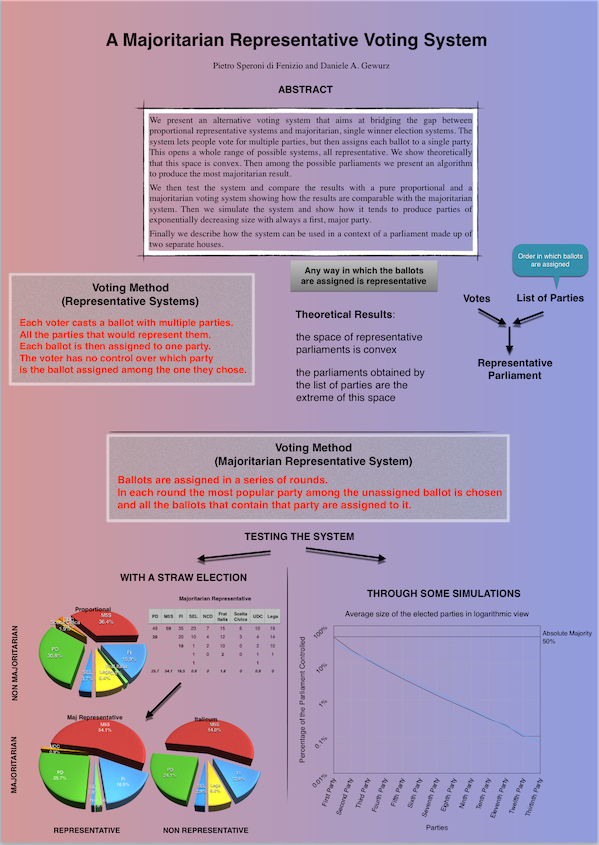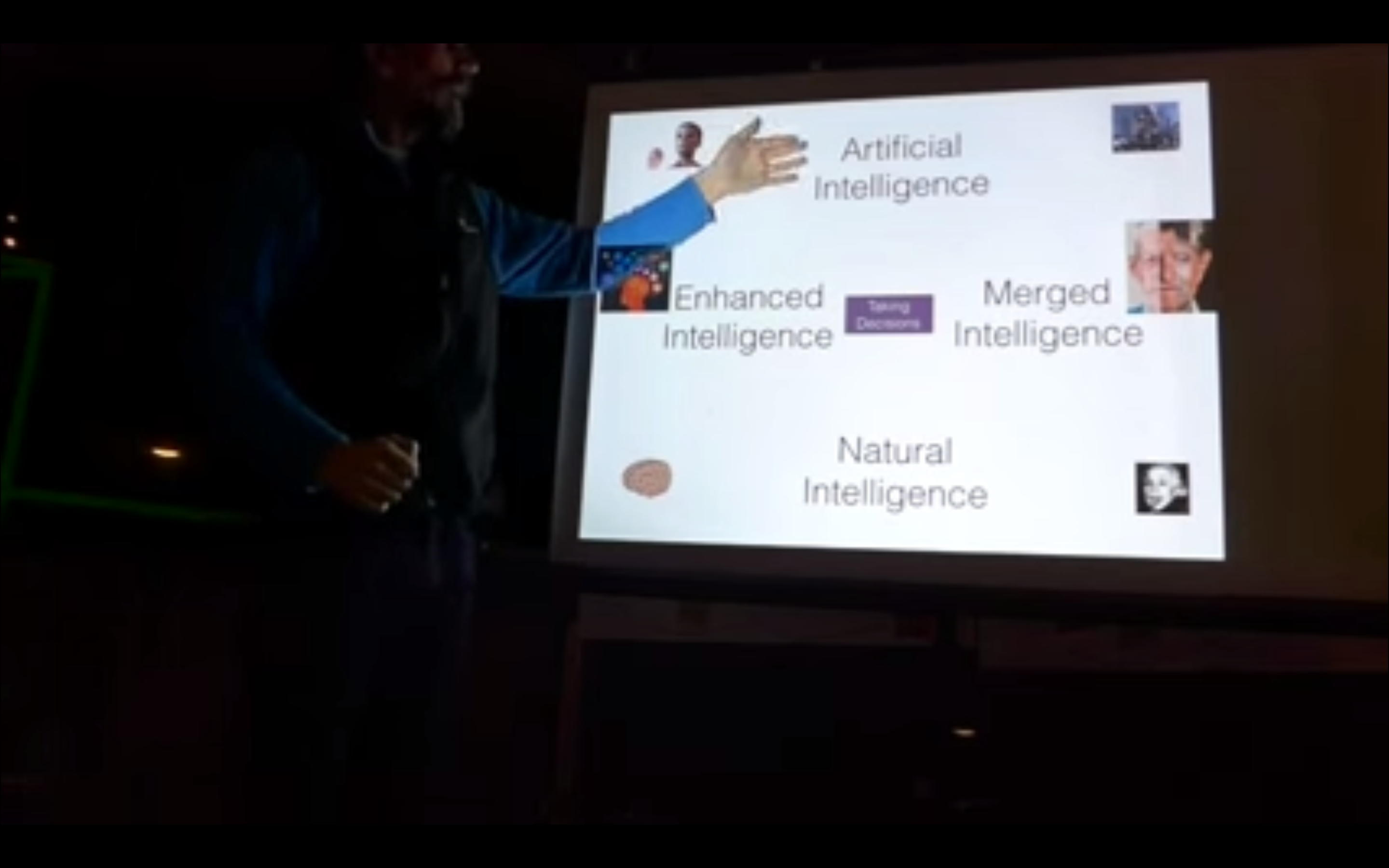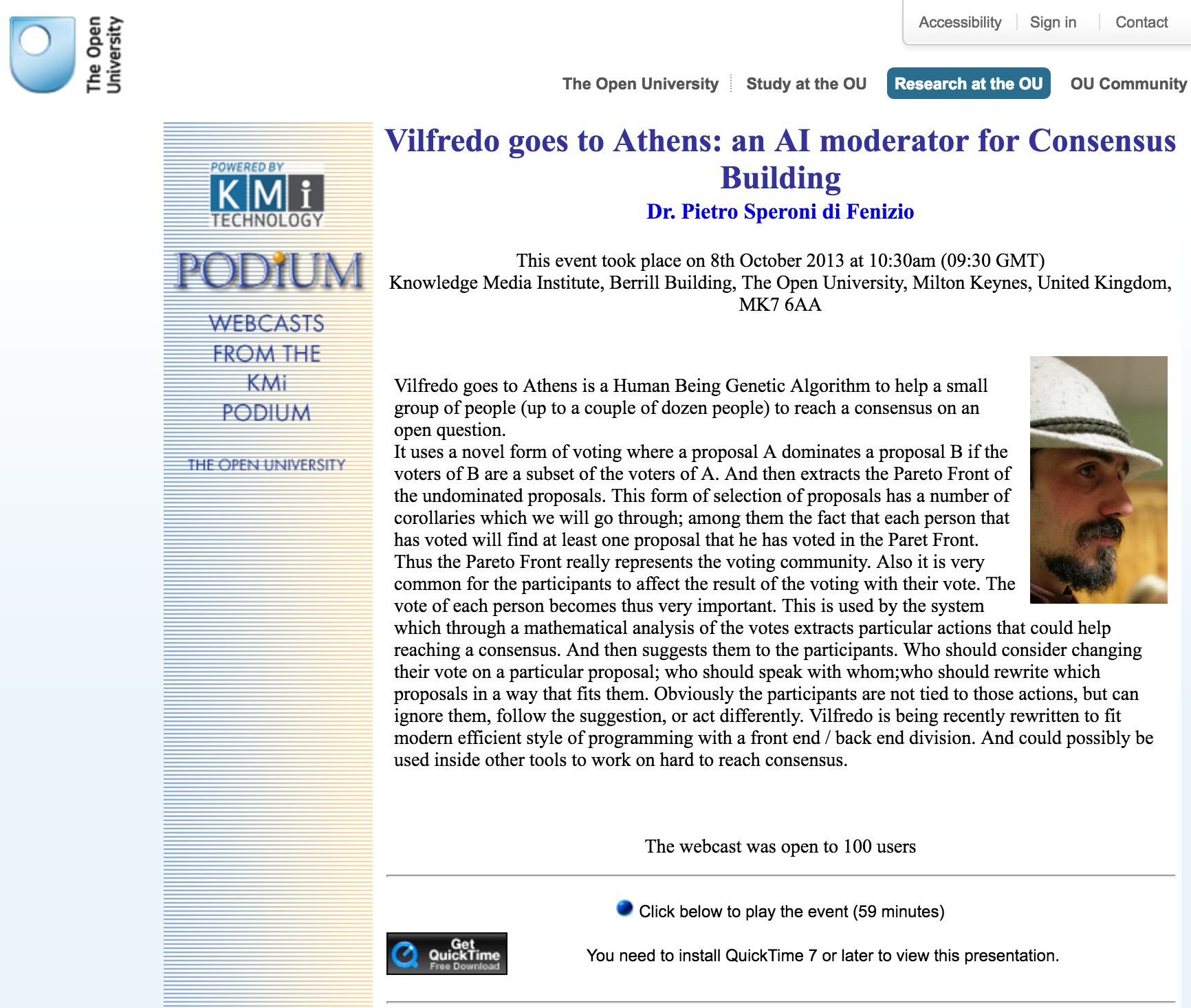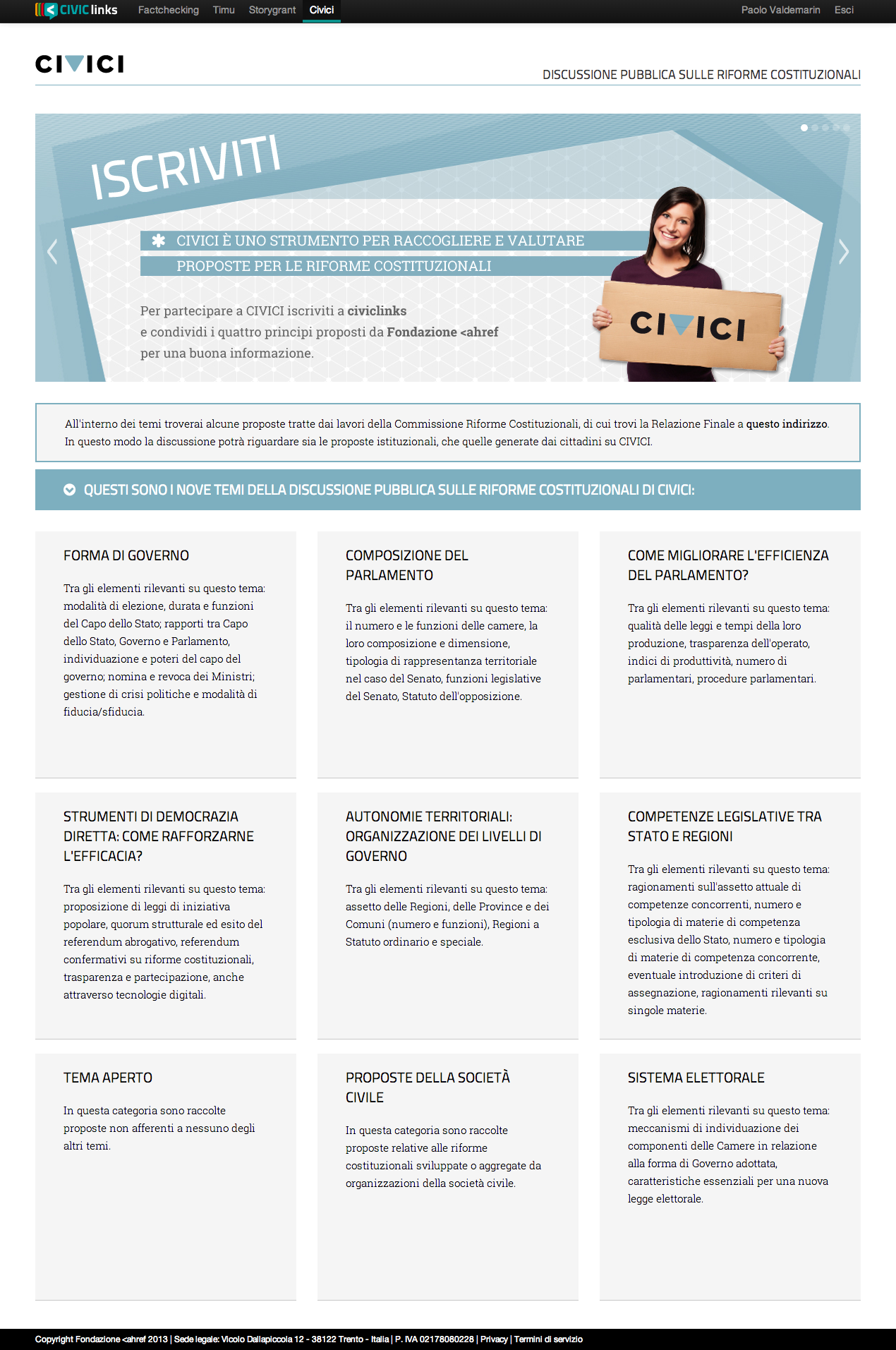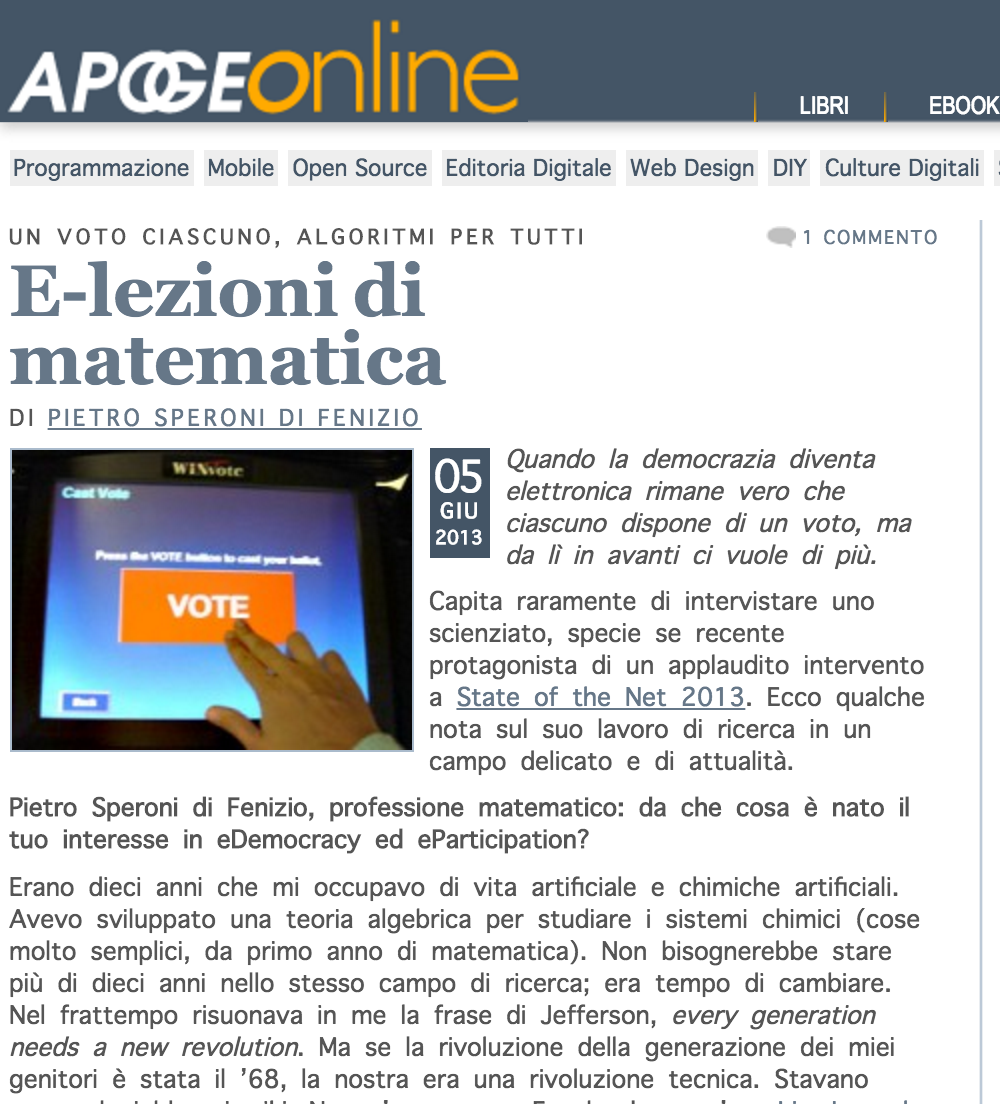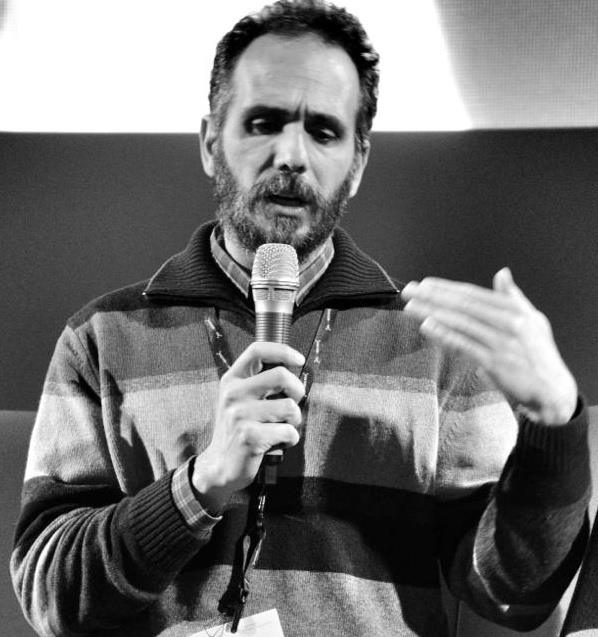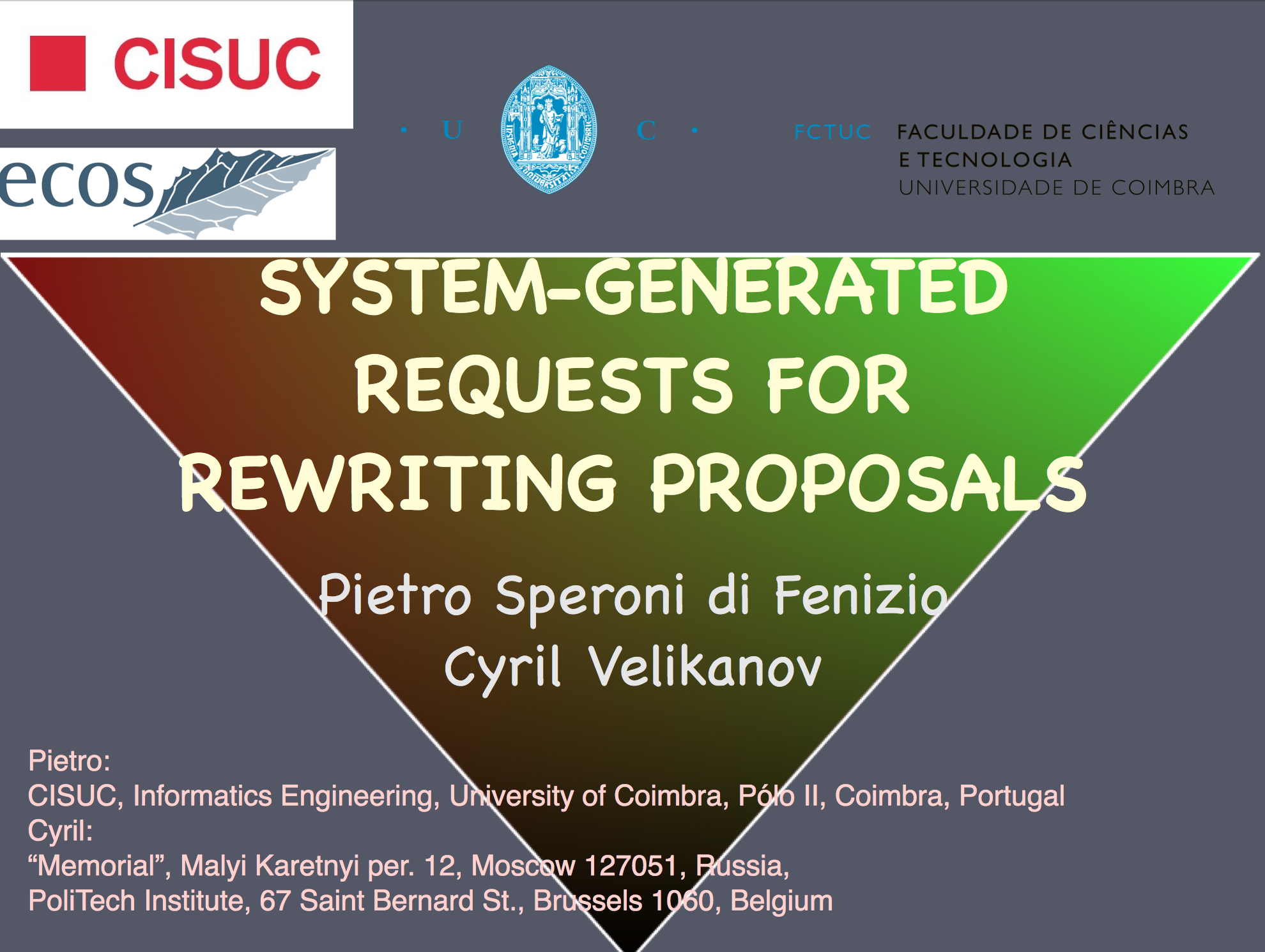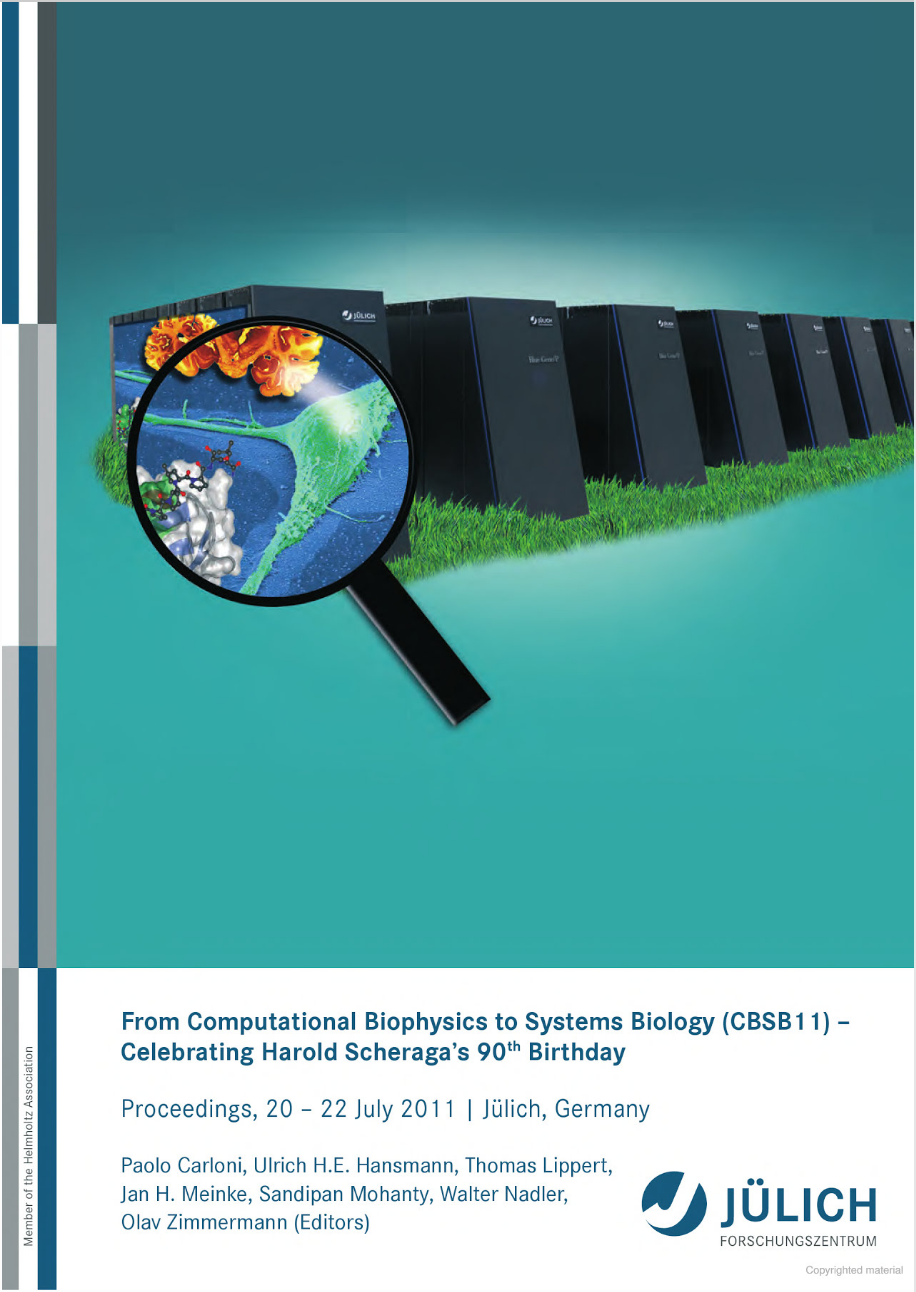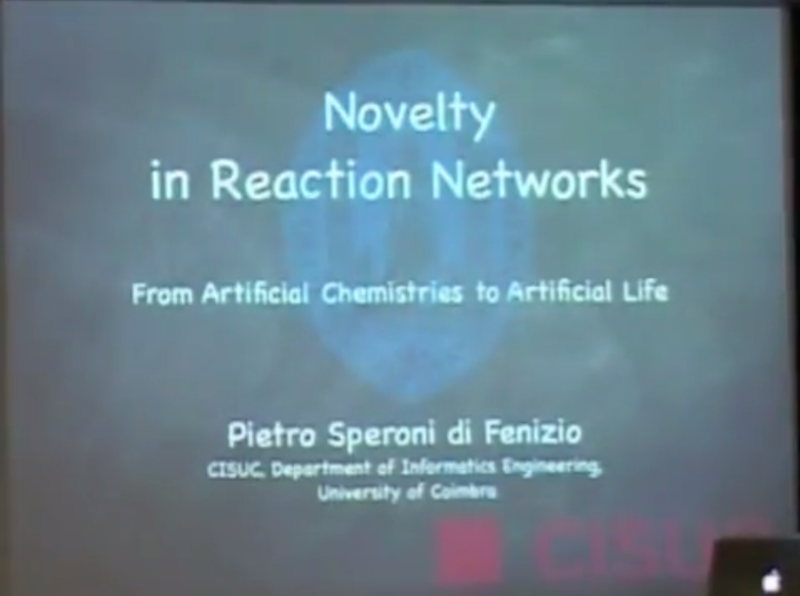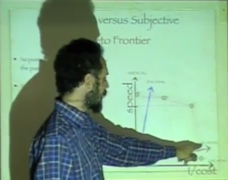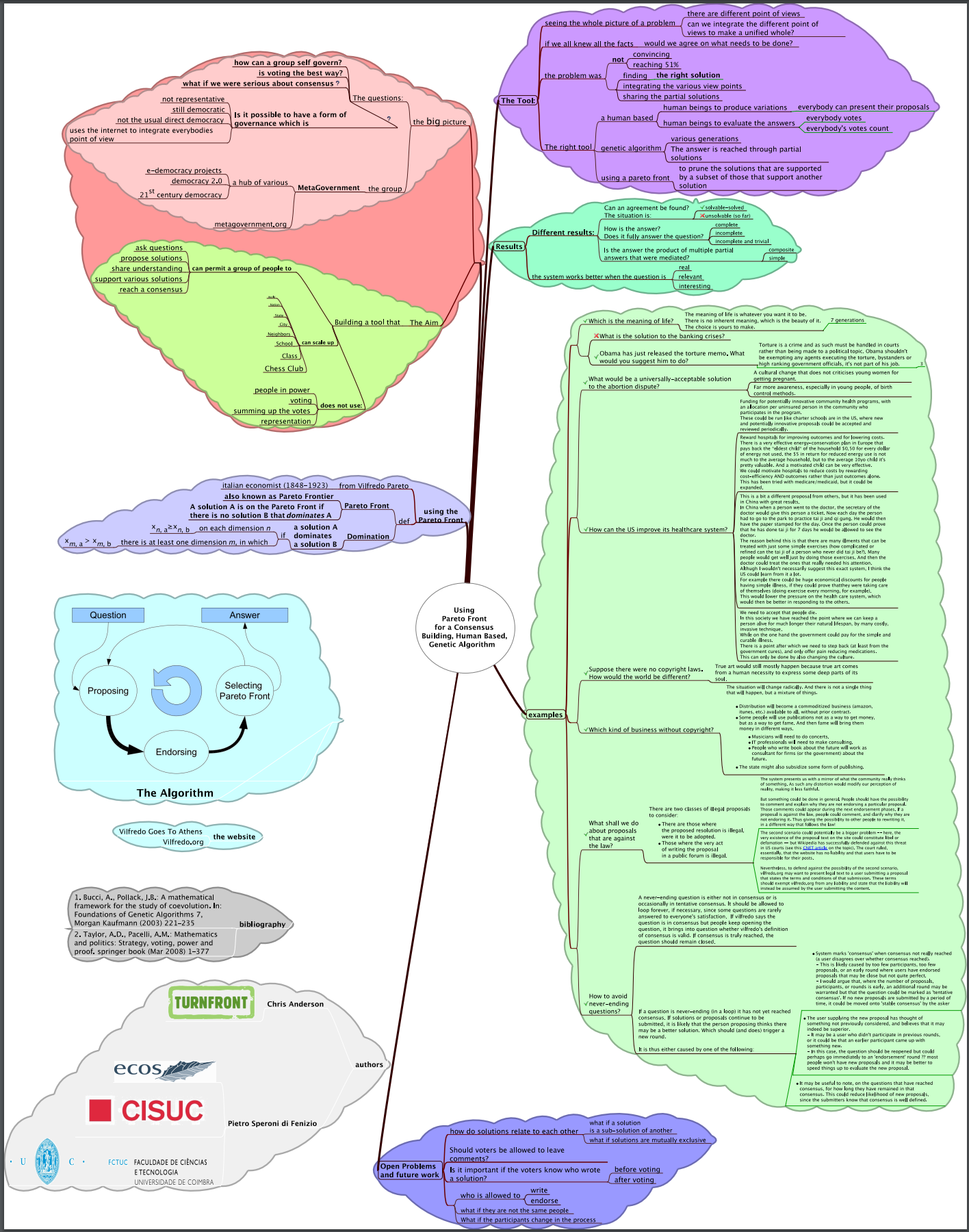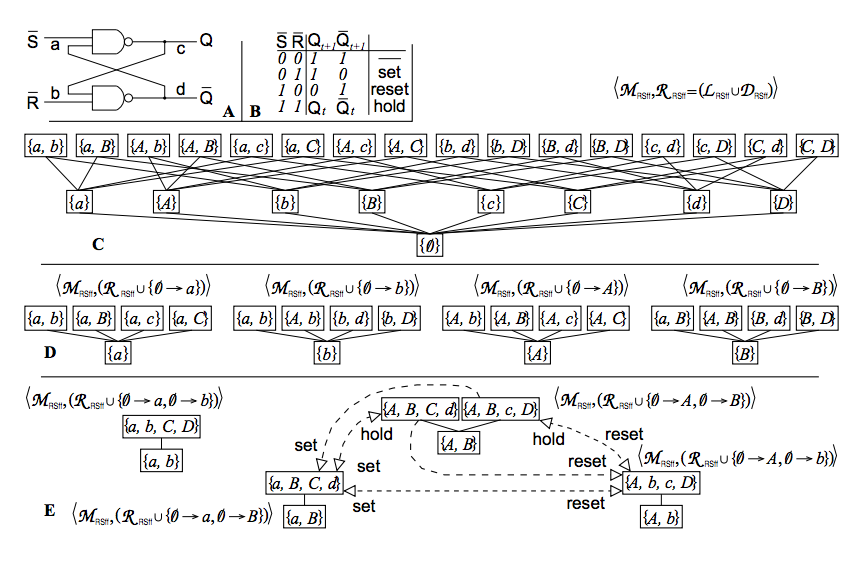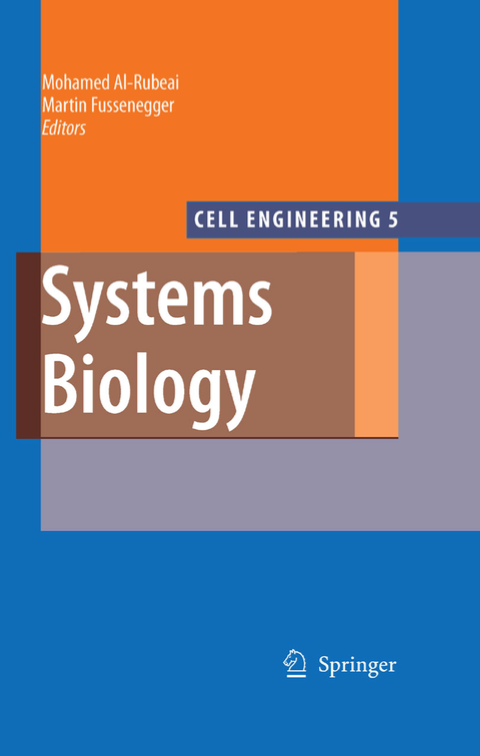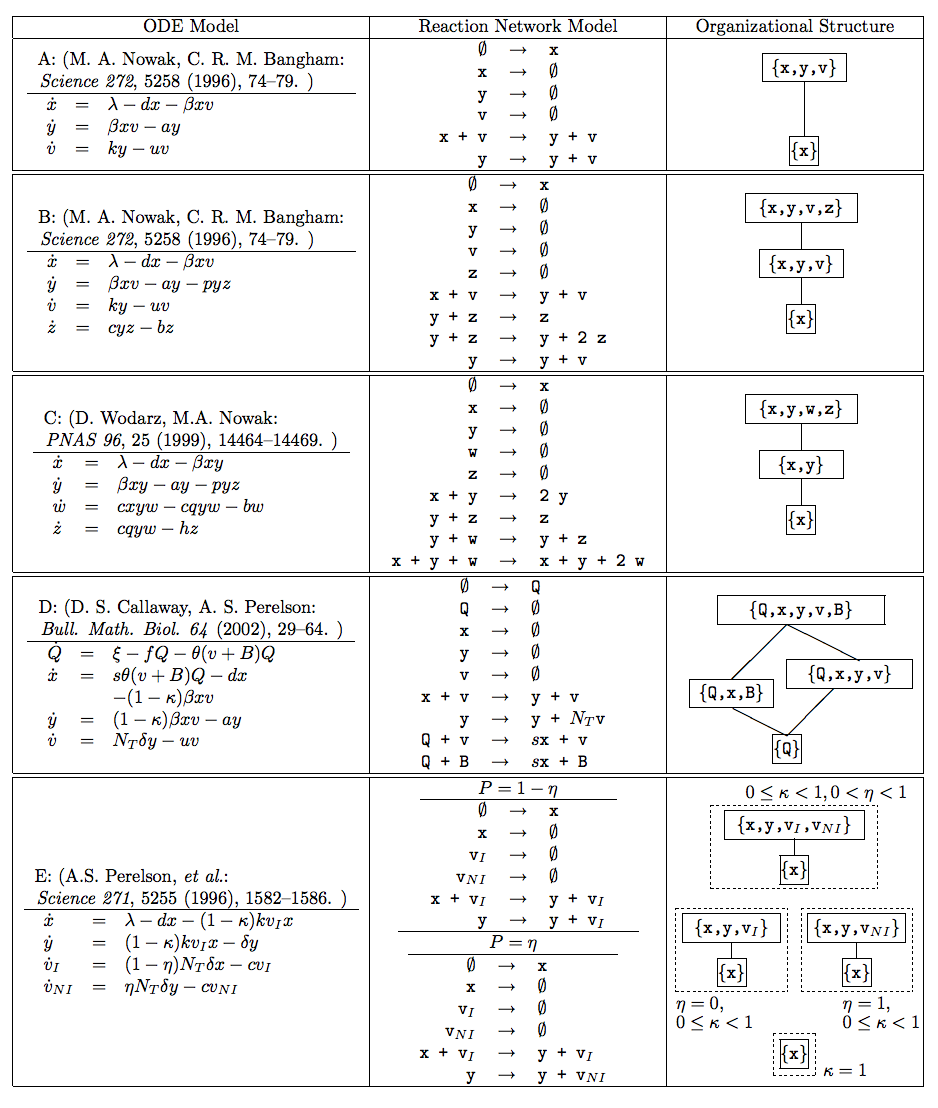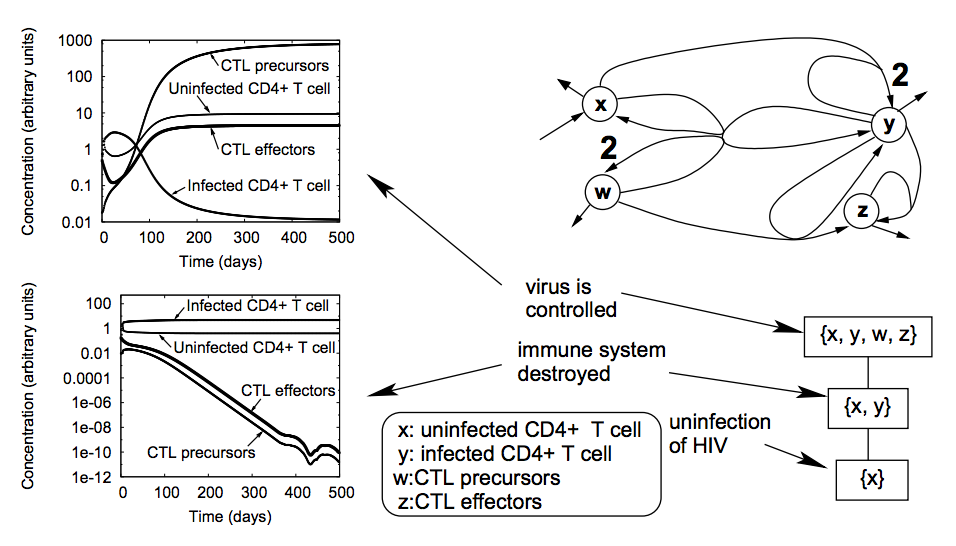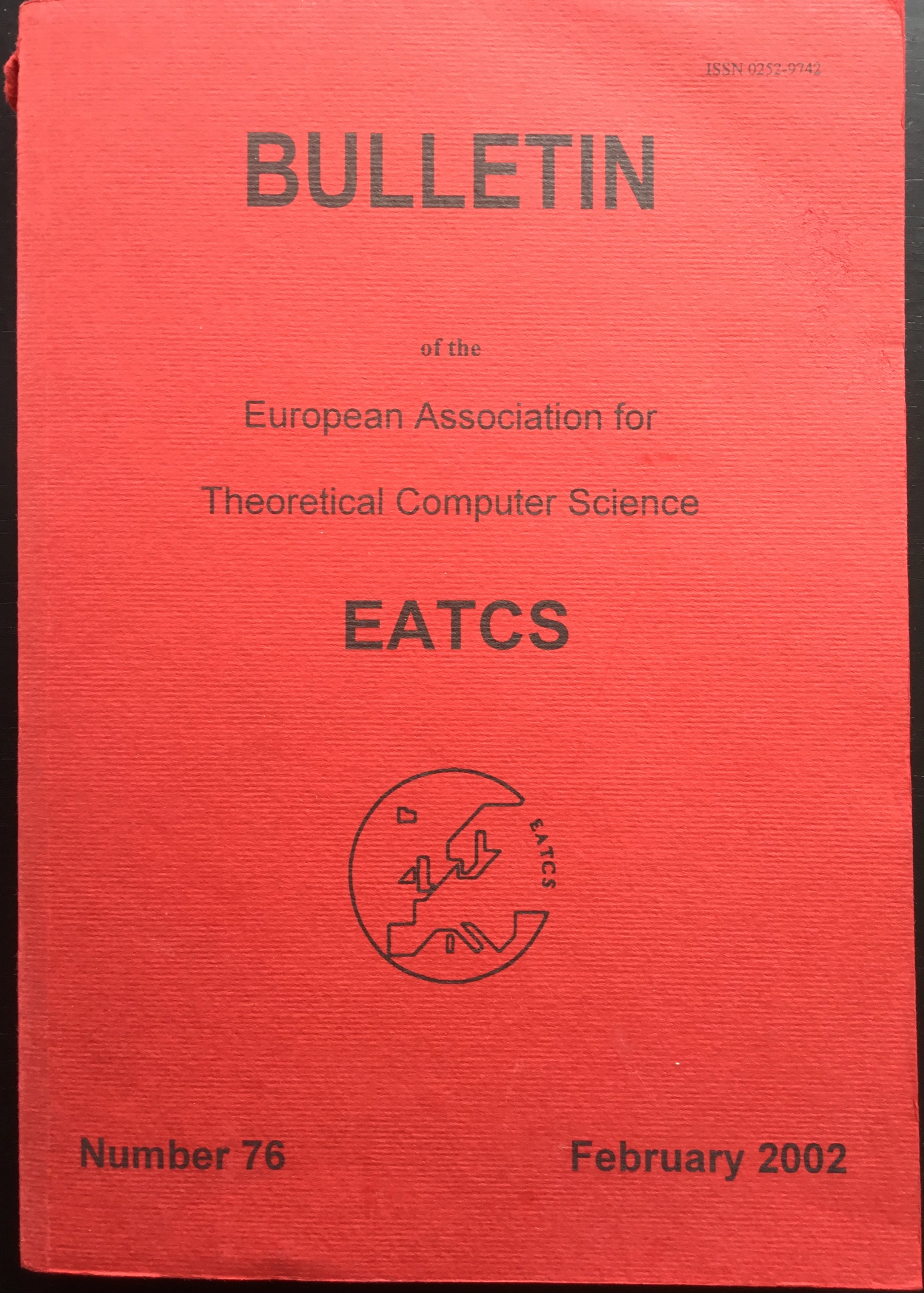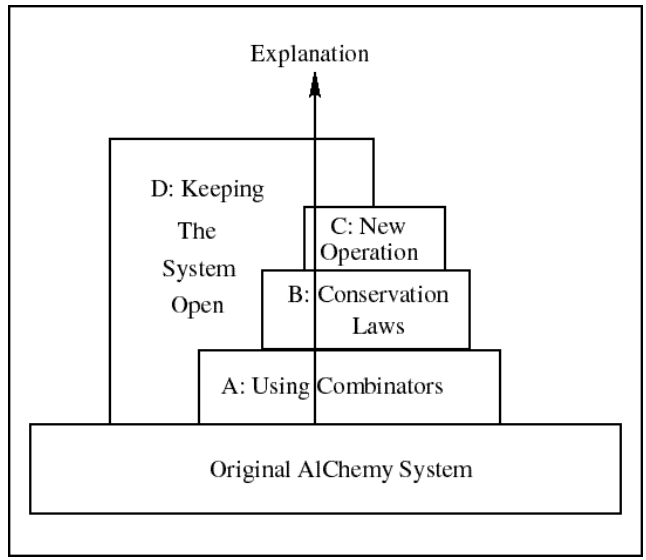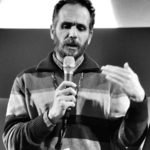
E-Democracy and Decision Making
Aim: Building a system that permits any group of people to find an agreed answer to an open question. I have a number of paper in this topic, and it is here where I do the most of my work as consultant and speaker. I have developed (sometimes alone, sometimes in collaborations) a number of […]

Artificial Chemistries
My aim while studying Artificial Chemistries was to build a system that would evolve in a way similar, and not inferior to how Nature itself evolves. As such in a way only limited by the memory and the computation power of the medium used (i.e. the cpu where I would run the experiment). You can […]

Vilfredo
Vilfredo is a platform I developed with my friend Derek Paterson, to reach consensus on an open question. It works by asking everybody in a group to propose their answer to the question and evaluate each other answer. It then analyses the evaluations to extract a shortlist of proposals that are representative of all participants. […]

The Voting Triangle
un sistema sintetico di valutazione che consente di mettere in relazione la comprensibilità di una proposta al livello di adesione o dissenso alla stessa; (Dipartimento per le Riforme Istituzionali, Consultazione Pubblica sulle Riforme Costituzionali. Rapporto Finale) The Voting Triangle is a tool we developed (originally with Cyril Velikanov), to gather more informations during the voting phase, […]
My Publications
Let the DAO decide “how much”
I present a technique to make decisions in an online community. The technique is simple to use, trivial to understand, and can be applied to a well defined wide range class of questions. The result is both representatives of the desire of the community as well as it approximates an expert’s decision.
Read More
Corso di Dottorato: Bitcoin e Blockchain per le Aziende
Ho tenuto il corso di dottorato: Bitcoin e Blockchain per le Aziende. per il Dottorato di Ricerca Business Institutions Market, dell’Università di Chieti-Pescara. Le lezioni si sono tenute a distanza a causa dell’emergenza Covid. Su richiesta degli studenti il corso ha anche accluso una parte sulle tecniche di Trading.
Read More
Why Bitcoin Energetic Consumption will keep growing, and it’s not going to be a problem
A Medium article that describes the link between Bitcoin production and the type of energetic production. published for Medium and reprinted here I was then contacted by Coinmonks, a non-profit Crypto educational publication, to include it which I happily agreed to.
Read More
Risposta sulle CBDC: Central Bank Digital Currency
Emilio mi ha passato una domanda di un lettore del suo blog e ho risposto. Domanda: Egr. dott. Tomasini, le chiedo un parere sul ruolo che, in un prossimo futuro, avranno le CBDC, cioè la valute digitali che le banche centrali stanno preparando, probabilmente per avere un controllo definitivo sulla circolazione del denaro. Quale rischio […]
Read More
Corso su Bitcoin e Cripto Monete
Il 29 Febbraio 2020 ho tenuto un corso sui Bitcoin. Il corso sarebbe dovuto essere in presenza a Modena, ma a causa dell’emergenza del Coronavirus è diventato un corso di 7 ore (con poche interruzioni, povero me!) online. Il corso è stato organizzato insieme a Emilio Tomasini, Docente all’Università di Bologna. E inserito all’interno come […]
Read More
Paper: Structure and Hierarchy of Influenza Virus Models Revealed by Reaction Network Analysis
Abstract: Influenza A virus is recognized today as one of the most challenging viruses that threatens both human and animal health worldwide. Understanding the control mechanisms of influenza infection and dynamics is crucial and could result in effective future treatment strategies. Many kinetic models based on differential equations have been developed in recent decades to […]
Read More
Paper on Nature Scientific Report: Multi-scale stochastic organization-oriented coarse-graining exemplified on the human mitotic checkpoint
Abstract: The complexity of biological models makes methods for their analysis and understanding highly desirable. Here, we demonstrate the orchestration of various novel coarse-graining methods by applying them to the mitotic spindle assembly checkpoint. We begin with a detailed fine-grained spatial model in which individual molecules are simulated moving and reacting in a three-dimensional space. […]
Read More
Il Futuro delle Criptovalute
Long Term Trends nelle Criptovalute: Possibili Sviluppi Ho fatto un intervento all’evento organizzato a Milano dall’Associazione Blockchain Italia. L’evento si intitolava Il Futuro delle Criptovalute. Sono disponibili le Slides, Il video del mio intervento e un link al video dell’Intervista per il canale POP Economy.
Read More
Paper: The space of all proportional voting systems and the most majoritarian among them
Abstract: We present an alternative voting system that aims at bridging the gap between pro-portional representative systems and majoritarian electoral systems. The system lets people vote for multiple party lists, but then assigns each ballot paper to a single party. This opens a whole range of possible parliaments, all proportionally representative. We show theoretically that […]
Read More
Ciclo di Seminari: Introduzione alle Criptovalute
Ho tenuto un ciclo di 5 seminari sulle criptovalute aperto a tutti ma indirizzato agli studenti di Economia dell’Università di Chieti Pescara. La presenza al corso valeva un credito. Le lezioni hanno coperto i seguenti argomenti: 1) I Bitcoin; Il Contesto: La Battaglia tra Keynes e Hayek; Funzioni Hash; Come funziona le Proof of Work; […]
Read More
Certificato al Corso Diventare Quant
Nel 2018 ho seguito il corso Diventare Quant (Becoming Quant), di Algoritmica.pro dagli insegnanti Emilio Tomasini, Andrea Angiolini e Francesco Placci. È stato l’inizio di un percorso molto vasto che mi ha permesso di applicare le conoscenze matematiche alla finanza e in particolare al Trading Automatico. Attraverso loro ho anche conosciuto Domenico Dall’Olio, docente sulle […]
Read More
Corso Universitario: Geometria per il Design
Nell’anno accademico 2017-2018 ho tenuto un corso di Geometria per il Design per la facoltà di Architettura dell’Università di Chieti-Pescara. È stato un corso di 6 crediti, 48 ore di lezione. Con esame finale scritto e orale. Il programma è stato: Interserzione, Unione, Prodotto cartesiano, Funzione, Dominio, Codominio, Immagine, Funzione composta, Funzioni iniettive, surriettive, biiettive […]
Read More
L’effetto delle criptomonete sul futuro degli stati. Problemi, opportunità e scenari.
Abstract: Possono i bitcoin essere banditi? Quali nazioni hanno convenienza a limitarne la diffusione e quali ad abbracciarli? Come affrontare la diffusione di Organizzazioni Autonome Distribuite? E cosa sono? L’invenzione della blockchain ha rappresentato un progresso tecnologico da cui non si può tornare indietro e con non si puó ignorare. La possibilità per chiunque di […]
Read More
Designing the Governance for the Blockchain: Theorems, Risks, Opportunities
Abstract: The blockchain hasn’t just seen the rise of the bitcoin as a mean of exchange, but also the possibility of the creation for DAO, Distributed Autonomous Organisations. Both DAOs and blockchain projects itself (each crypto coin) are never finished projects, but require continues update and decisions. How should those be permitted? Developing the correct […]
Read More
Lesson at the Toulouse E-Democracy Summer School: Consensus vs. Consent vs. Majoritarian
How are Consensus vs Consent vs a Majoritarian decision making system different? A lesson I gave at the Toulouse Summer School (with Video)
Read More
The Proportional Majoritarian Voting System.
Many people consider electoral systems to be either Majoritarian or Proportionally Representative. And the two type of system to be mutually exclusive. But this was never proven, and for a very good reason, they are not mutually exclusive. In this video I present a new voting system which is both Majoritarian and Proportional.
Read More
Apogeo Online: Un Sistema di Voto con Cuore e Cervello
Un Articolo per Apogeo Online sul sistema di voto Maggioritario Proporzionale che ho sviluppato con Daniele Gewurz. Articolo: Parte prima; Parte seconda; Parte terza;
Read More
Il Bilanciamento dei Poteri nella Democrazia Elettronica: Bilanciare le Petizioni
Pietro Speroni di Fenizio, Il Bilanciamento dei Poteri nella Democrazia Elettronica.
Per la Tavola Rotonda: eDemocracy, come usare la rete per decidere in modo civico.
Read More
A Majoritarian Representative Voting System
Pietro Speroni di Fenizio, Daniele Gewurz: A Majoritarian Representative Voting System. in COMSOC, 2016
Read More
The Lattice of Chemical Organizations
Pietro Speroni di Fenizio The Lattice of Chemical Organizations in: 13th European Conference on Artificial Life (ECAL 2015).
http://dx.doi.org/10.7551/978-0-262-33027-5-ch048 Pages 242–248 First published 20 July 2015 ECAL, 2015.
Read More
The Merging of Human Intelligence
Pietro Speroni di Fenizio, The Merging of Human Intelligence, Talk Given for the unMonastery group at the 2015 Transmediale conference in Berlin.
Read More
Participation at the Dagstuhl Seminar: Algorithmic Cheminformatics
I was invited to participate in the Dagstuhl Seminar on Algorithmic Cheminformatics.
This was the presentation of the event:
Read More
Uso del Triangolo: Consultazione Pubblica sulle Riforme Costituzionali Rapporto Finale
Dipartimento per le Riforme Istituzionali
Consultazione Pubblica sulle Riforme Costituzionali. Rapporto Finale
Read More
Vilfredo goes to Athens: an AI moderator for Consensus Building
Pietro Speroni di Fenizio, Vilfredo goes to Athens: an AI moderator for Consensus Building, hosted talk at the Open University.
Read More
Fondazione Ahref presenta Civici / Ahref Foundation presents Civici
Ahref Foundation presents Civici, a platform that uses the triangles as a base for the consultations.
Read More
I Codici (Software) della Democrazia: Vilfredo goes to Athens, tool di e-deliberation
Pietro Speroni di Fenizio, Vilfredo goes to Athens, tool di e-deliberation. Talk at the workshop: I Codici Della Democrazia
(Una delle migliori presentazioni di Vilfredo. Tra le più completo. Purtroppo l’audio la rende quasi incomprensibile.)
Read More
State of the Net: Verso la eDemocracy
Barbara Alessandrini,
State of the Net: Verso la eDemocracy
l’Opinione
Read More
e-Lezioni di Matematica
Pietro Speroni di Fenizio, E-Lezioni di Matematica: un voto ciascuno, algoritmi per tutti.
Intervista per ApogeOnline.
Read More
Keynote for State of the Net 2013: History of eDemocracy
Pietro Speroni di Fenizio; History of eDemocracy; Keynote speaker for State of the Net 2013.
Read More
L’anima matematica dell’eDemocracy
Valentina Rossi,
L’anima Matematica della eDemocracy
intervista per Oggi Scienza
Read More
I Media Civici in Ambito Parlamentare, Strumenti Disponibili e Possibili Scenari d’uso
Fondazione Ahref e Servizio Informatica del Senato I Media Civici in Ambito Parlamentare, Strumenti Disponibili e Possibili Scenari d’uso. Senato della Repubblica, Maggio 2013 (come collaboratore per Ahref)
Read More
e-Democracy e Matematica
Pietro Speroni di Fenizio eDemocracy e Matematica, RENA Summer School. Buon Governo e Cittadinanza Responsabile. Slides
Read More
Suddivisione dei finanziamenti in maniera equa sulla base dei voti dei cittadini
Pietro Speroni di Fenizio, Suddivisione dei finanziamenti in maniera equa sulla base dei voti dei cittadini, Technical Report per http://www.bipart.it/ 8 Luglio 2012
Read More
System Generated Requests for Rewriting Proposals.
Pietro Speroni di Fenizio, Cyril Valikanov. System Generated Requests for Rewriting Proposals. 29-August-2011. ePart 2011 Conference.
Read More
Book Chapter: Chemical Organisation Theory
Peter Kreyssig, Naoki Matsumaru, Florian Centler, Pietro Speroni di Fenizio, Peter Dittrich Chemical Organisation Theory. From Computational Biophysics to Systems Biology (CBSB11) – Celebrating Harold Scheraga’s 90th Birthday, pg 99-105, 20 july 2011
Read More
Fair Participation, a Special case of Fair Division or Something Else?
Pietro Speroni di Fenizio and Cyril Valikanov. Fair Participation, a Special case of Fair Division or Something Else?
Extended Abstract with talk. 3 May 2011, Budapest, COMSOC 2011.
Read More
Don’t Vote, Evolve!
Pietro Speroni di Fenizio, Derek Paterson Don’t Vote, Evolve! Proc. of the Second international conference on eParticipation (ePart 2010), LNCS, 2010, Lausanne (Switzerland), August 2010.
Read More
A parallel algorithm to compute chemical organizations in biological networks
Florian Centler; Christoph Kaleta; Pietro Speroni di Fenizio; Peter Dittrich (2010), A parallel algorithm to compute chemical organizations in biological networks, Bioinformatics Applications Note 26 (14), 1788 – 1789
Read More
Studying Novelty in Reaction Networks
Pietro Speroni di Fenizio(2009) Studying novelty in reaction networks: From novelty in artificial chemistries to novelty in artificial life
Invited talk for the Alergic Wed 11th Nov. meeting.
Read More
Voting Not as Usual
Voting, not as usual: using a human-based genetic algorithm to answer an open question
Invited Talk at Southampton University. 09/11/2009 . Video of the talk available.
Read More
Using Pareto Front for a Consensus Building, Human Based, Genetic Algorithm
Pietro Speroni di Fenizio, Chris Anderson, Using Pareto Front for a Consensus Building, Human Based, Genetic Algorithm, Proc. European Conference on Artificial Life (ECAL 2009), LNCS, Springer, Berlin, pg 175-182, 2009
Read More
Flying over Mountain Improbability
Pietro Speroni di Fenizio, Naoki Matsumaru, Peter Dittrich, Flying over Mountain Improbability, Proc. European Conference on Artificial Life (ECAL 2009), LNCS, Springer, Berlin, pg 385-393, 2009
Read More
Informazione, si rischia la crisi di abbondanza.
Pietro Speroni di Fenizio, Donato Speroni, Informazione, si rischia la crisi di abbondanza. East Europe and Asia Strategies, 25, June, 2009 pg. 112-128.
Read More
How should the 21st century democracy be organised?
Pietro Speroni di Fenizio, Donato Speroni, How should the 21st century democracy be organised? in: Proc. of International Workshop on Challenges and Visions in the Social Sciences
Read More
Observing Society through Tags
Pietro Speroni di Fenizio (2008) Observing Society through Tags: Using Tags to help Society. in: Summer School on Modeling and Simulation for Young Scientists. Video
Read More
Chemical Organizations in Living Systems
Peter Dittrich, Florian Centler, Christoph Kaleta, Naoki Matsumaru and Pietro Speroni di Fenizio Chemical Organizations in Living Systems, in: Proc. 9th European Conference on Artificial Life, LNCS, Springer, Berlin.
Read More
Computing Chemical Organizations in Biological Networks
F. Centler; C. Kaleta; P. Speroni di Fenizio; Peter Dittrich, Computing Chemical Organizations in Biological Networks
Bioinformatics 2008; doi: 10.1093/bioinformatics/btn228
Read More
Phenotype prediction in regulated metabolic networks
Christoph Kaleta; Florian Centler; Pietro Speroni di Fenizio; Peter Dittrich. Phenotype prediction in regulated metabolic networks. BMC Systems Biology, 2:37, 2008
Read More
PhD Thesis: Chemical Organizations Theory
P. Speroni di Fenizio; Chemical Organizations Theory, Doctoral thesis, Chair of Systems Analysis, Department of Computer Science, University of Jena, Germany, 2007
Read More
Chemical Organizations at Different Spatial Scales
Pietro Speroni di Fenizio, Peter Dittrich, Chemical Organizations at Different Spatial Scales, In: Proc. European Conference on Artificial Life (ECAL 2007), LNCS 4648, p. 1-11, Springer, Berlin, 2007
Read More
Chemical Organization Theory
Peter Dittrich, Pietro Speroni di Fenizio (2007), Chemical Organization Theory, Bull. Math. Biol., 69(4):1199-1231, 2007
Read More
Chemical Organization Theory as a Theoretical Base for Chemical Computing
Naoki Matsumaru, Florian Centler, Pietro Speroni di Fenizio, Peter Dittrich, Chemical Organization Theory as a Theoretical Base for Chemical Computing, International Journal of Unconventional Computing, 3(4), January 2007
Read More
Book Chapter for Cell Engineering: Chemical Organization Theory
Peter Dittrich, Pietro Speroni di Fenizio (2006) Chemical Organisation Theory In: M. Al-Rubeai, M. Fussenegger (Eds.); Cell Engineering, Volume 5: Systems Biology, Springer
Read More
On the Evolution of Chemical Organizations
Naoki Matsumaru, Pietro Speroni di Fenizio, Florian Centler, Peter Dittrich, On the Evolution of Chemical Organizations,
in: S. Artmann, P. Dittrich (Eds.), Proc. 7th German Workshop on Artificial Life, p. 135-146
Read More
Chemical Organisation Theory Applied to Virus Dynamics
Naoki Matsumaru, Florian Centler, Pietro Speroni di Fenizio, Peter Dittrich, Chemical organization theory applied to virus dynamics
it – Information Technology, 48(3), 154-160, March 2006
Read More
A Case Study of Chemical Organization Theory Applied to Virus Dynamics
Naoki Matsumaru, Pietro Speroni di Fenizio, Florian Centler, Peter Dittrich, A Case Study of Chemical Organization Theory Applied to Virus Dynamics, in: J. T. Kim (Ed.), Systems Biology Workshop at ECAL 2005, Workshop Proceedings CD-ROM, 5-9 September 2005, Kent, UK
Read More
Chemical Organisations in the Central Sugar Metabolism of Escherichia Coli
Florian Centler, Pietro Speroni di Fenizio, Naoki Matsumaru, Peter Dittrich, Chemical organizations in the central sugar metabolism of Escherichia Coli In: Modeling and Simulation in Science Engineering and Technology, Post-proceedings of ECMTB 2005
Read More
Artificial Chemistries
Pietro Speroni di Fenizio, Artificial Chemistries In: Gheorghe Paun; Grzegorz Rozenberg, Arto Salomaa (Eds.); Current Trends in Theoretical Computer Science: The Challenge of the New Century, p. 613-632, ISBN: 9812387838, Vol 1: Algorithms and Complexity, World Scientific Pub Co Inc. April 2004
Read More
Artificial Chemistry’s Global Dynamic. Movement in the Lattice of Organisations
Pietro Speroni di Fenizio, Peter Dittrich. Artificial Chemistry’s Global Dynamic. Movement in the Lattice of Organisations invited paper for: HC2002. Fifth International Conference on Humans and Computers, Aizu. reprinted for: The Journal of Three Dimensional Images, 16(4):160-163.
Read More
Artificial Chemistries (an introduction)
Pietro Speroni di Fenizio, Artificial Chemistries (an introduction), Bulletin of the European Association for Theoretical Computer Science 76(2002),128-141.
Read More
Spontaneous Formation of Proto-Cells in an Universal Artificial Chemistry on a Planar Graph
Pietro Speroni di Fenizio, Peter Dittrich, and Wolfgang Banzhaf, Spontaneous Formation of Proto-Cells in an Universal Artificial Chemistry on a Planar Graph in: J. Kelemen and P. Sosik (Eds.), Advances in Artificial Life (Proc. 6th European Conference on Artificial Life), LNCS 2159, pp. 206-215, Prague, September 10-14, 2001. Springer, Berlin.
Read More
Stability of Metabolic and Balanced Organisations
Pietro Speroni di Fenizio, and Wolfgang Banzhaf Stability of metabolic and balanced organisations. in: J. Kelemen and P. Sosik (Eds.), Advances in Artificial Life (Proc. 6th European Conference on Artificial Life), LNCS 2159, pp. 196-205, Prague, September 10-14, 2001. Springer, Berlin.
Read More
A Less Abstract Artificial Chemistry
Pietro Speroni di Fenizio, A less abstract artificial chemistry, in Artificial Life VII, M. Bedau, J. Mc-Caskill, N. Packard, and S. Rasmussen, eds., Cambridge, MA, 2000, MIT Press, pp. 49-53.
Read More
Master Thesis: Building Life Without Cheating
Pietro Speroni di Fenizio, Building life without cheating. Master’s thesis, University of Sussex, Falmer, Brighton, UK. 1999.
Read More
Let the DAO decide “how much”
I present a technique to make decisions in an online community. The technique is simple to use, trivial to understand, and can be applied to a well defined wide range class of questions. The result is both representatives of the desire of the community as well as it approximates an expert’s decision.
Read MoreCorso di Dottorato: Bitcoin e Blockchain per le Aziende
Ho tenuto il corso di dottorato: Bitcoin e Blockchain per le Aziende. per il Dottorato di Ricerca Business Institutions Market, dell’Università di Chieti-Pescara. Le lezioni si sono tenute a distanza a causa dell’emergenza Covid. Su richiesta degli studenti il corso ha anche accluso una parte sulle tecniche di Trading.
Read MoreWhy Bitcoin Energetic Consumption will keep growing, and it’s not going to be a problem
A Medium article that describes the link between Bitcoin production and the type of energetic production. published for Medium and reprinted here I was then contacted by Coinmonks, a non-profit Crypto educational publication, to include it which I happily agreed to.
Read MoreRisposta sulle CBDC: Central Bank Digital Currency
Emilio mi ha passato una domanda di un lettore del suo blog e ho risposto. Domanda: Egr. dott. Tomasini, le chiedo un parere sul ruolo che, in un prossimo futuro, avranno le CBDC, cioè la valute digitali che le banche centrali stanno preparando, probabilmente per avere un controllo definitivo sulla circolazione del denaro. Quale rischio […]
Read MoreCorso su Bitcoin e Cripto Monete
Il 29 Febbraio 2020 ho tenuto un corso sui Bitcoin. Il corso sarebbe dovuto essere in presenza a Modena, ma a causa dell’emergenza del Coronavirus è diventato un corso di 7 ore (con poche interruzioni, povero me!) online. Il corso è stato organizzato insieme a Emilio Tomasini, Docente all’Università di Bologna. E inserito all’interno come […]
Read MorePaper: Structure and Hierarchy of Influenza Virus Models Revealed by Reaction Network Analysis
Abstract: Influenza A virus is recognized today as one of the most challenging viruses that threatens both human and animal health worldwide. Understanding the control mechanisms of influenza infection and dynamics is crucial and could result in effective future treatment strategies. Many kinetic models based on differential equations have been developed in recent decades to […]
Read MorePaper on Nature Scientific Report: Multi-scale stochastic organization-oriented coarse-graining exemplified on the human mitotic checkpoint
Abstract: The complexity of biological models makes methods for their analysis and understanding highly desirable. Here, we demonstrate the orchestration of various novel coarse-graining methods by applying them to the mitotic spindle assembly checkpoint. We begin with a detailed fine-grained spatial model in which individual molecules are simulated moving and reacting in a three-dimensional space. […]
Read MoreIl Futuro delle Criptovalute
Long Term Trends nelle Criptovalute: Possibili Sviluppi Ho fatto un intervento all’evento organizzato a Milano dall’Associazione Blockchain Italia. L’evento si intitolava Il Futuro delle Criptovalute. Sono disponibili le Slides, Il video del mio intervento e un link al video dell’Intervista per il canale POP Economy.
Read MorePaper: The space of all proportional voting systems and the most majoritarian among them
Abstract: We present an alternative voting system that aims at bridging the gap between pro-portional representative systems and majoritarian electoral systems. The system lets people vote for multiple party lists, but then assigns each ballot paper to a single party. This opens a whole range of possible parliaments, all proportionally representative. We show theoretically that […]
Read MoreCiclo di Seminari: Introduzione alle Criptovalute
Ho tenuto un ciclo di 5 seminari sulle criptovalute aperto a tutti ma indirizzato agli studenti di Economia dell’Università di Chieti Pescara. La presenza al corso valeva un credito. Le lezioni hanno coperto i seguenti argomenti: 1) I Bitcoin; Il Contesto: La Battaglia tra Keynes e Hayek; Funzioni Hash; Come funziona le Proof of Work; […]
Read MoreCertificato al Corso Diventare Quant
Nel 2018 ho seguito il corso Diventare Quant (Becoming Quant), di Algoritmica.pro dagli insegnanti Emilio Tomasini, Andrea Angiolini e Francesco Placci. È stato l’inizio di un percorso molto vasto che mi ha permesso di applicare le conoscenze matematiche alla finanza e in particolare al Trading Automatico. Attraverso loro ho anche conosciuto Domenico Dall’Olio, docente sulle […]
Read MoreCorso Universitario: Geometria per il Design
Nell’anno accademico 2017-2018 ho tenuto un corso di Geometria per il Design per la facoltà di Architettura dell’Università di Chieti-Pescara. È stato un corso di 6 crediti, 48 ore di lezione. Con esame finale scritto e orale. Il programma è stato: Interserzione, Unione, Prodotto cartesiano, Funzione, Dominio, Codominio, Immagine, Funzione composta, Funzioni iniettive, surriettive, biiettive […]
Read MoreL’effetto delle criptomonete sul futuro degli stati. Problemi, opportunità e scenari.
Abstract: Possono i bitcoin essere banditi? Quali nazioni hanno convenienza a limitarne la diffusione e quali ad abbracciarli? Come affrontare la diffusione di Organizzazioni Autonome Distribuite? E cosa sono? L’invenzione della blockchain ha rappresentato un progresso tecnologico da cui non si può tornare indietro e con non si puó ignorare. La possibilità per chiunque di […]
Read MoreDesigning the Governance for the Blockchain: Theorems, Risks, Opportunities
Abstract: The blockchain hasn’t just seen the rise of the bitcoin as a mean of exchange, but also the possibility of the creation for DAO, Distributed Autonomous Organisations. Both DAOs and blockchain projects itself (each crypto coin) are never finished projects, but require continues update and decisions. How should those be permitted? Developing the correct […]
Read MoreLesson at the Toulouse E-Democracy Summer School: Consensus vs. Consent vs. Majoritarian
How are Consensus vs Consent vs a Majoritarian decision making system different? A lesson I gave at the Toulouse Summer School (with Video)
Read MoreThe Proportional Majoritarian Voting System.
Many people consider electoral systems to be either Majoritarian or Proportionally Representative. And the two type of system to be mutually exclusive. But this was never proven, and for a very good reason, they are not mutually exclusive. In this video I present a new voting system which is both Majoritarian and Proportional.
Read MoreApogeo Online: Un Sistema di Voto con Cuore e Cervello
Un Articolo per Apogeo Online sul sistema di voto Maggioritario Proporzionale che ho sviluppato con Daniele Gewurz. Articolo: Parte prima; Parte seconda; Parte terza;
Read MoreIl Bilanciamento dei Poteri nella Democrazia Elettronica: Bilanciare le Petizioni
Pietro Speroni di Fenizio, Il Bilanciamento dei Poteri nella Democrazia Elettronica.
Per la Tavola Rotonda: eDemocracy, come usare la rete per decidere in modo civico.
A Majoritarian Representative Voting System
Pietro Speroni di Fenizio, Daniele Gewurz: A Majoritarian Representative Voting System. in COMSOC, 2016
Read MoreThe Lattice of Chemical Organizations
Pietro Speroni di Fenizio The Lattice of Chemical Organizations in: 13th European Conference on Artificial Life (ECAL 2015).
http://dx.doi.org/10.7551/978-0-262-33027-5-ch048 Pages 242–248 First published 20 July 2015 ECAL, 2015.
The Merging of Human Intelligence
Pietro Speroni di Fenizio, The Merging of Human Intelligence, Talk Given for the unMonastery group at the 2015 Transmediale conference in Berlin.
Read MoreParticipation at the Dagstuhl Seminar: Algorithmic Cheminformatics
I was invited to participate in the Dagstuhl Seminar on Algorithmic Cheminformatics.
This was the presentation of the event:
Read MoreUso del Triangolo: Consultazione Pubblica sulle Riforme Costituzionali Rapporto Finale
Dipartimento per le Riforme Istituzionali
Consultazione Pubblica sulle Riforme Costituzionali. Rapporto Finale
Vilfredo goes to Athens: an AI moderator for Consensus Building
Pietro Speroni di Fenizio, Vilfredo goes to Athens: an AI moderator for Consensus Building, hosted talk at the Open University.
Read MoreFondazione Ahref presenta Civici / Ahref Foundation presents Civici
Ahref Foundation presents Civici, a platform that uses the triangles as a base for the consultations.
Read MoreI Codici (Software) della Democrazia: Vilfredo goes to Athens, tool di e-deliberation
Pietro Speroni di Fenizio, Vilfredo goes to Athens, tool di e-deliberation. Talk at the workshop: I Codici Della Democrazia
(Una delle migliori presentazioni di Vilfredo. Tra le più completo. Purtroppo l’audio la rende quasi incomprensibile.)
State of the Net: Verso la eDemocracy
Barbara Alessandrini,
State of the Net: Verso la eDemocracy
l’Opinione
e-Lezioni di Matematica
Pietro Speroni di Fenizio, E-Lezioni di Matematica: un voto ciascuno, algoritmi per tutti.
Intervista per ApogeOnline.
Keynote for State of the Net 2013: History of eDemocracy
Pietro Speroni di Fenizio; History of eDemocracy; Keynote speaker for State of the Net 2013.
Read MoreL’anima matematica dell’eDemocracy
Valentina Rossi,
L’anima Matematica della eDemocracy
intervista per Oggi Scienza
I Media Civici in Ambito Parlamentare, Strumenti Disponibili e Possibili Scenari d’uso
Fondazione Ahref e Servizio Informatica del Senato I Media Civici in Ambito Parlamentare, Strumenti Disponibili e Possibili Scenari d’uso. Senato della Repubblica, Maggio 2013 (come collaboratore per Ahref)
Read Moree-Democracy e Matematica
Pietro Speroni di Fenizio eDemocracy e Matematica, RENA Summer School. Buon Governo e Cittadinanza Responsabile. Slides
Read MoreSuddivisione dei finanziamenti in maniera equa sulla base dei voti dei cittadini
Pietro Speroni di Fenizio, Suddivisione dei finanziamenti in maniera equa sulla base dei voti dei cittadini, Technical Report per http://www.bipart.it/ 8 Luglio 2012
Read MoreSystem Generated Requests for Rewriting Proposals.
Pietro Speroni di Fenizio, Cyril Valikanov. System Generated Requests for Rewriting Proposals. 29-August-2011. ePart 2011 Conference.
Read MoreBook Chapter: Chemical Organisation Theory
Peter Kreyssig, Naoki Matsumaru, Florian Centler, Pietro Speroni di Fenizio, Peter Dittrich Chemical Organisation Theory. From Computational Biophysics to Systems Biology (CBSB11) – Celebrating Harold Scheraga’s 90th Birthday, pg 99-105, 20 july 2011
Read MoreFair Participation, a Special case of Fair Division or Something Else?
Pietro Speroni di Fenizio and Cyril Valikanov. Fair Participation, a Special case of Fair Division or Something Else?
Extended Abstract with talk. 3 May 2011, Budapest, COMSOC 2011.
Don’t Vote, Evolve!
Pietro Speroni di Fenizio, Derek Paterson Don’t Vote, Evolve! Proc. of the Second international conference on eParticipation (ePart 2010), LNCS, 2010, Lausanne (Switzerland), August 2010.
Read MoreA parallel algorithm to compute chemical organizations in biological networks
Florian Centler; Christoph Kaleta; Pietro Speroni di Fenizio; Peter Dittrich (2010), A parallel algorithm to compute chemical organizations in biological networks, Bioinformatics Applications Note 26 (14), 1788 – 1789
Read MoreStudying Novelty in Reaction Networks
Pietro Speroni di Fenizio(2009) Studying novelty in reaction networks: From novelty in artificial chemistries to novelty in artificial life
Invited talk for the Alergic Wed 11th Nov. meeting.
Voting Not as Usual
Voting, not as usual: using a human-based genetic algorithm to answer an open question
Invited Talk at Southampton University. 09/11/2009 . Video of the talk available.
Using Pareto Front for a Consensus Building, Human Based, Genetic Algorithm
Pietro Speroni di Fenizio, Chris Anderson, Using Pareto Front for a Consensus Building, Human Based, Genetic Algorithm, Proc. European Conference on Artificial Life (ECAL 2009), LNCS, Springer, Berlin, pg 175-182, 2009
Read MoreFlying over Mountain Improbability
Pietro Speroni di Fenizio, Naoki Matsumaru, Peter Dittrich, Flying over Mountain Improbability, Proc. European Conference on Artificial Life (ECAL 2009), LNCS, Springer, Berlin, pg 385-393, 2009
Read MoreInformazione, si rischia la crisi di abbondanza.
Pietro Speroni di Fenizio, Donato Speroni, Informazione, si rischia la crisi di abbondanza. East Europe and Asia Strategies, 25, June, 2009 pg. 112-128.
Read MoreHow should the 21st century democracy be organised?
Pietro Speroni di Fenizio, Donato Speroni, How should the 21st century democracy be organised? in: Proc. of International Workshop on Challenges and Visions in the Social Sciences
Read MoreObserving Society through Tags
Pietro Speroni di Fenizio (2008) Observing Society through Tags: Using Tags to help Society. in: Summer School on Modeling and Simulation for Young Scientists. Video
Read MoreChemical Organizations in Living Systems
Peter Dittrich, Florian Centler, Christoph Kaleta, Naoki Matsumaru and Pietro Speroni di Fenizio Chemical Organizations in Living Systems, in: Proc. 9th European Conference on Artificial Life, LNCS, Springer, Berlin.
Read MoreComputing Chemical Organizations in Biological Networks
F. Centler; C. Kaleta; P. Speroni di Fenizio; Peter Dittrich, Computing Chemical Organizations in Biological Networks
Bioinformatics 2008; doi: 10.1093/bioinformatics/btn228
Phenotype prediction in regulated metabolic networks
Christoph Kaleta; Florian Centler; Pietro Speroni di Fenizio; Peter Dittrich. Phenotype prediction in regulated metabolic networks. BMC Systems Biology, 2:37, 2008
Read MorePhD Thesis: Chemical Organizations Theory
P. Speroni di Fenizio; Chemical Organizations Theory, Doctoral thesis, Chair of Systems Analysis, Department of Computer Science, University of Jena, Germany, 2007
Read MoreChemical Organizations at Different Spatial Scales
Pietro Speroni di Fenizio, Peter Dittrich, Chemical Organizations at Different Spatial Scales, In: Proc. European Conference on Artificial Life (ECAL 2007), LNCS 4648, p. 1-11, Springer, Berlin, 2007
Read MoreChemical Organization Theory
Peter Dittrich, Pietro Speroni di Fenizio (2007), Chemical Organization Theory, Bull. Math. Biol., 69(4):1199-1231, 2007
Read MoreChemical Organization Theory as a Theoretical Base for Chemical Computing
Naoki Matsumaru, Florian Centler, Pietro Speroni di Fenizio, Peter Dittrich, Chemical Organization Theory as a Theoretical Base for Chemical Computing, International Journal of Unconventional Computing, 3(4), January 2007
Read MoreBook Chapter for Cell Engineering: Chemical Organization Theory
Peter Dittrich, Pietro Speroni di Fenizio (2006) Chemical Organisation Theory In: M. Al-Rubeai, M. Fussenegger (Eds.); Cell Engineering, Volume 5: Systems Biology, Springer
Read MoreOn the Evolution of Chemical Organizations
Naoki Matsumaru, Pietro Speroni di Fenizio, Florian Centler, Peter Dittrich, On the Evolution of Chemical Organizations,
in: S. Artmann, P. Dittrich (Eds.), Proc. 7th German Workshop on Artificial Life, p. 135-146
Chemical Organisation Theory Applied to Virus Dynamics
Naoki Matsumaru, Florian Centler, Pietro Speroni di Fenizio, Peter Dittrich, Chemical organization theory applied to virus dynamics
it – Information Technology, 48(3), 154-160, March 2006
A Case Study of Chemical Organization Theory Applied to Virus Dynamics
Naoki Matsumaru, Pietro Speroni di Fenizio, Florian Centler, Peter Dittrich, A Case Study of Chemical Organization Theory Applied to Virus Dynamics, in: J. T. Kim (Ed.), Systems Biology Workshop at ECAL 2005, Workshop Proceedings CD-ROM, 5-9 September 2005, Kent, UK
Read MoreChemical Organisations in the Central Sugar Metabolism of Escherichia Coli
Florian Centler, Pietro Speroni di Fenizio, Naoki Matsumaru, Peter Dittrich, Chemical organizations in the central sugar metabolism of Escherichia Coli In: Modeling and Simulation in Science Engineering and Technology, Post-proceedings of ECMTB 2005
Read MoreArtificial Chemistries
Pietro Speroni di Fenizio, Artificial Chemistries In: Gheorghe Paun; Grzegorz Rozenberg, Arto Salomaa (Eds.); Current Trends in Theoretical Computer Science: The Challenge of the New Century, p. 613-632, ISBN: 9812387838, Vol 1: Algorithms and Complexity, World Scientific Pub Co Inc. April 2004
Read MoreArtificial Chemistry’s Global Dynamic. Movement in the Lattice of Organisations
Pietro Speroni di Fenizio, Peter Dittrich. Artificial Chemistry’s Global Dynamic. Movement in the Lattice of Organisations invited paper for: HC2002. Fifth International Conference on Humans and Computers, Aizu. reprinted for: The Journal of Three Dimensional Images, 16(4):160-163.
Read MoreArtificial Chemistries (an introduction)
Pietro Speroni di Fenizio, Artificial Chemistries (an introduction), Bulletin of the European Association for Theoretical Computer Science 76(2002),128-141.
Read MoreSpontaneous Formation of Proto-Cells in an Universal Artificial Chemistry on a Planar Graph
Pietro Speroni di Fenizio, Peter Dittrich, and Wolfgang Banzhaf, Spontaneous Formation of Proto-Cells in an Universal Artificial Chemistry on a Planar Graph in: J. Kelemen and P. Sosik (Eds.), Advances in Artificial Life (Proc. 6th European Conference on Artificial Life), LNCS 2159, pp. 206-215, Prague, September 10-14, 2001. Springer, Berlin.
Read MoreStability of Metabolic and Balanced Organisations
Pietro Speroni di Fenizio, and Wolfgang Banzhaf Stability of metabolic and balanced organisations. in: J. Kelemen and P. Sosik (Eds.), Advances in Artificial Life (Proc. 6th European Conference on Artificial Life), LNCS 2159, pp. 196-205, Prague, September 10-14, 2001. Springer, Berlin.
Read MoreA Less Abstract Artificial Chemistry
Pietro Speroni di Fenizio, A less abstract artificial chemistry, in Artificial Life VII, M. Bedau, J. Mc-Caskill, N. Packard, and S. Rasmussen, eds., Cambridge, MA, 2000, MIT Press, pp. 49-53.
Read MoreMaster Thesis: Building Life Without Cheating
Pietro Speroni di Fenizio, Building life without cheating. Master’s thesis, University of Sussex, Falmer, Brighton, UK. 1999.
Read MoreCorporate Lite theme by Flythemes
